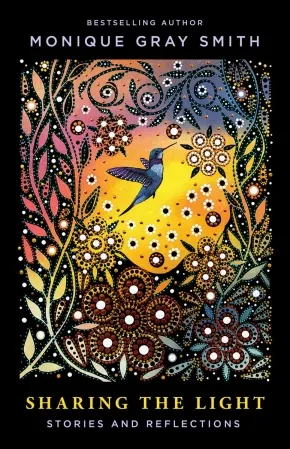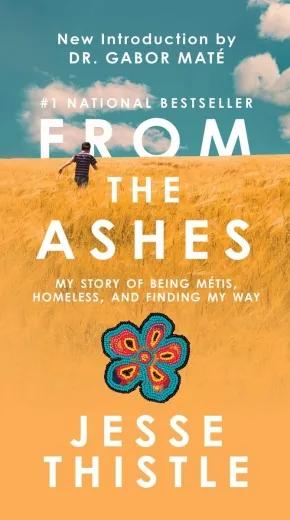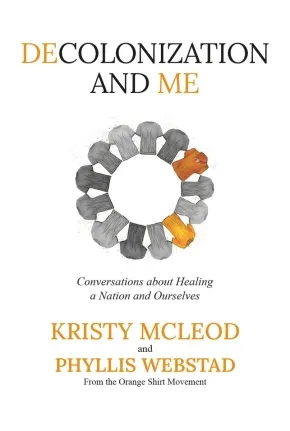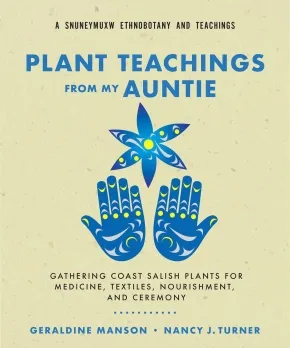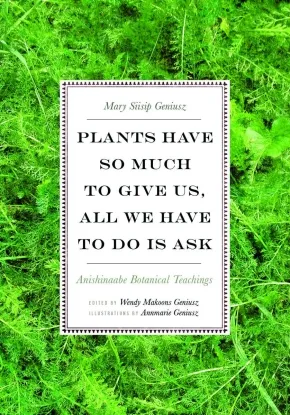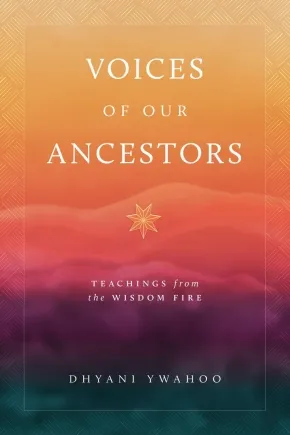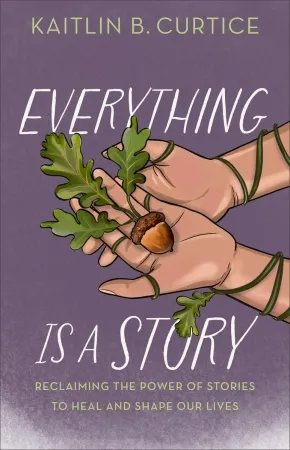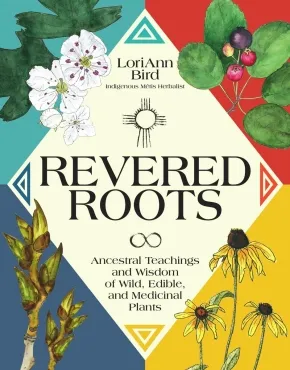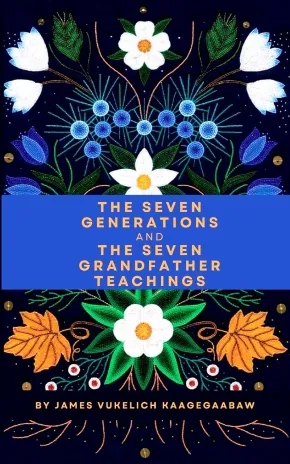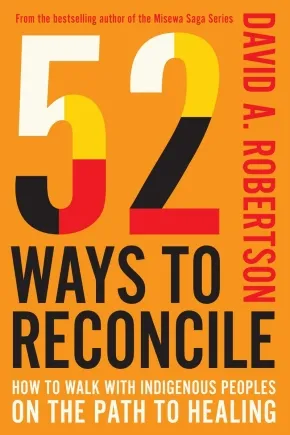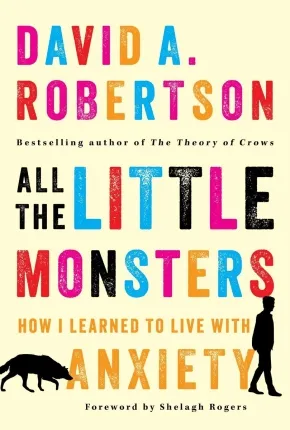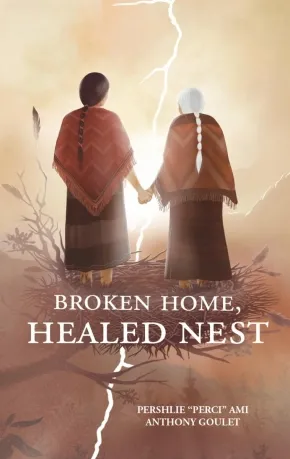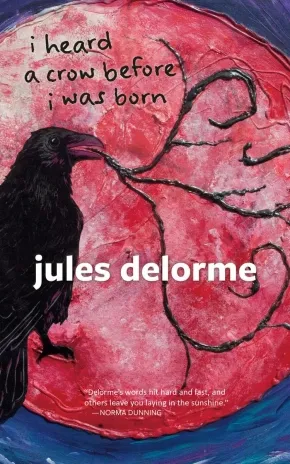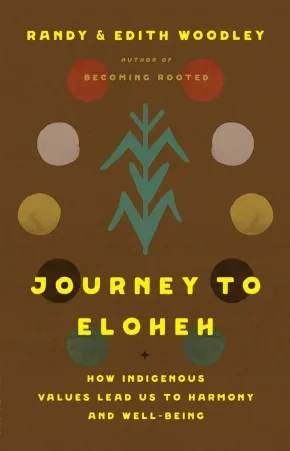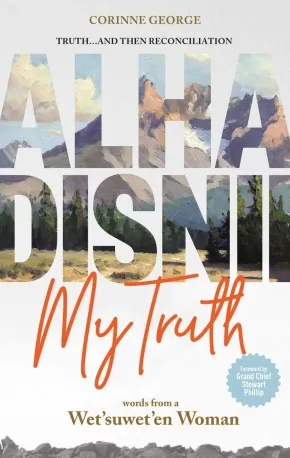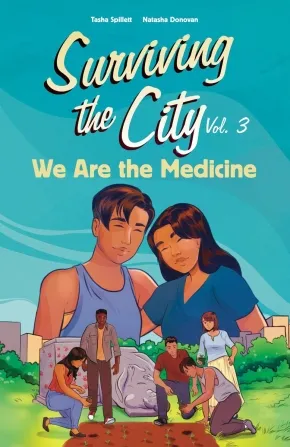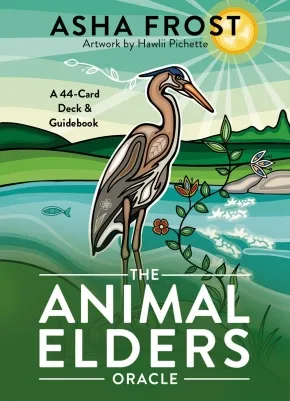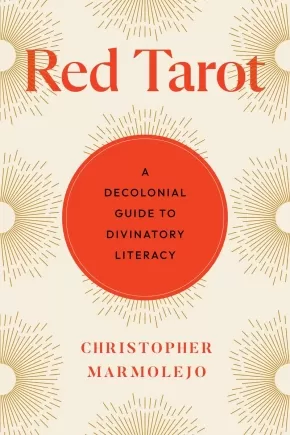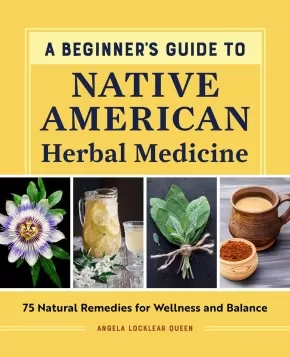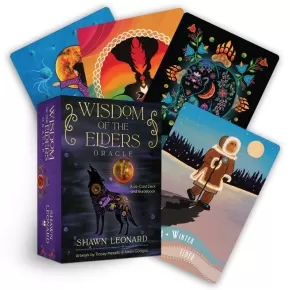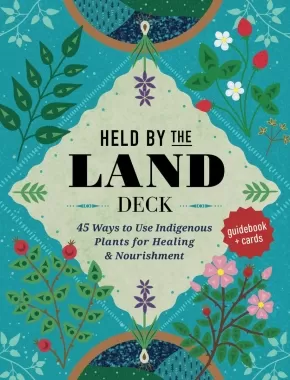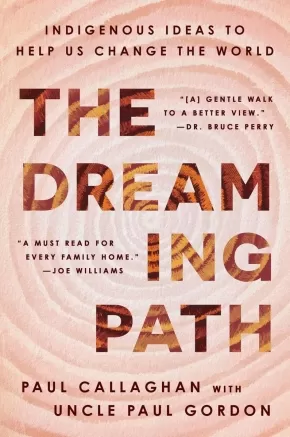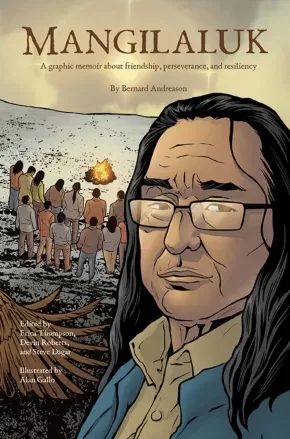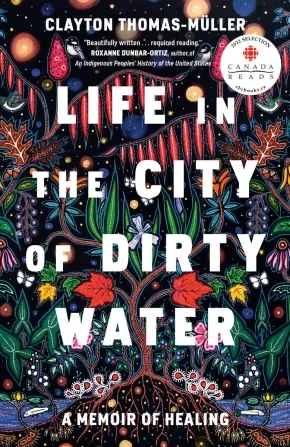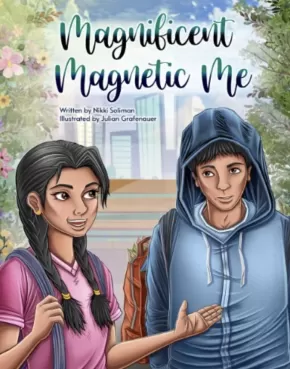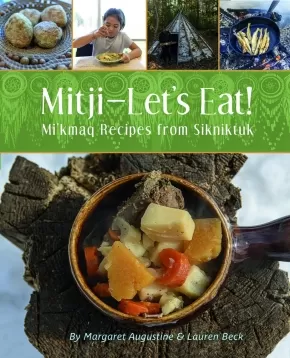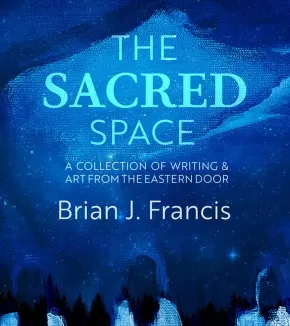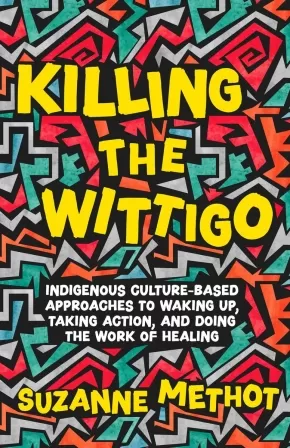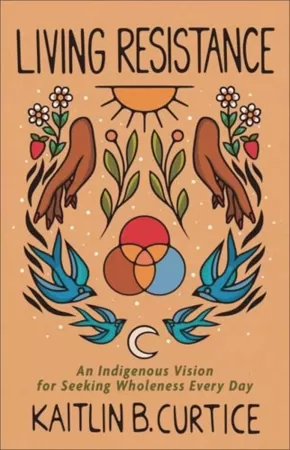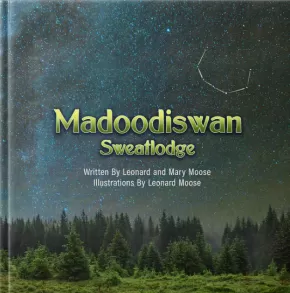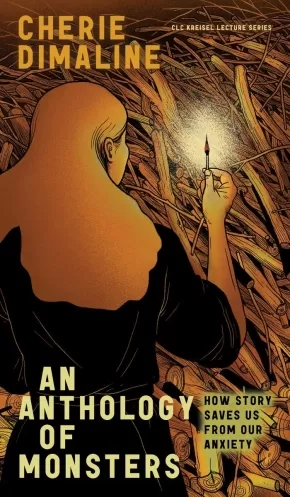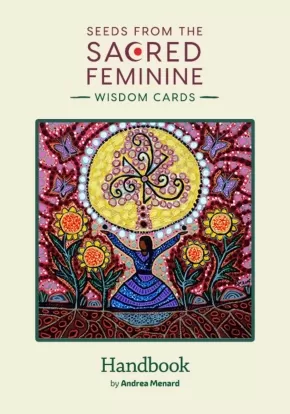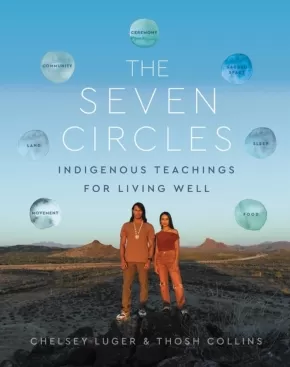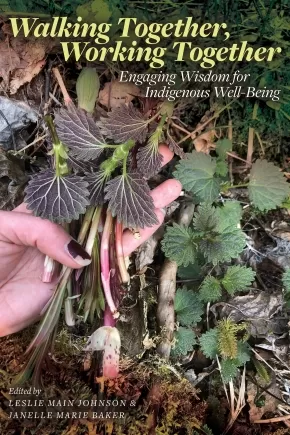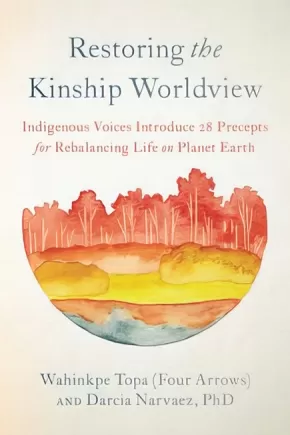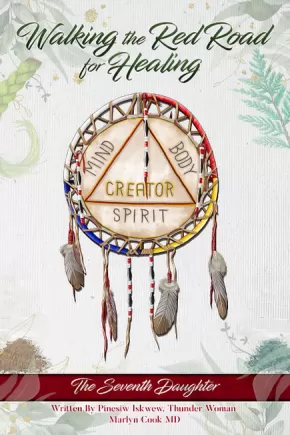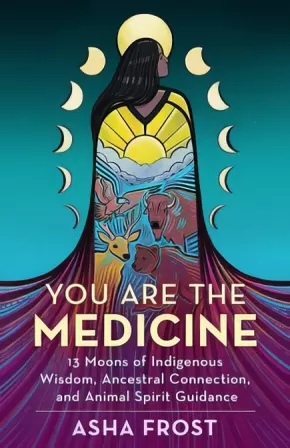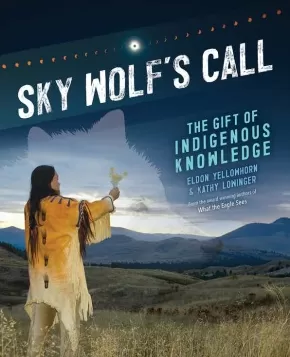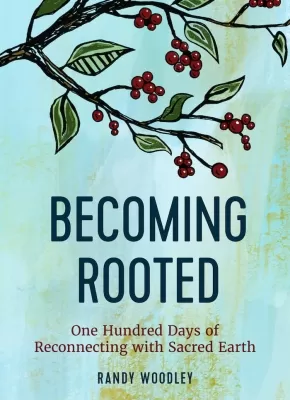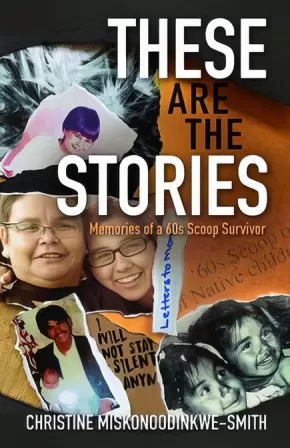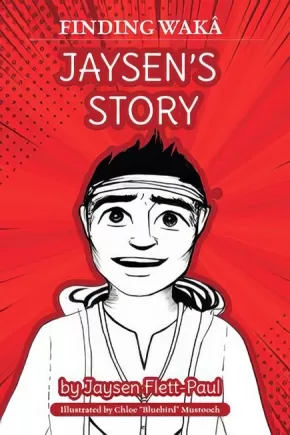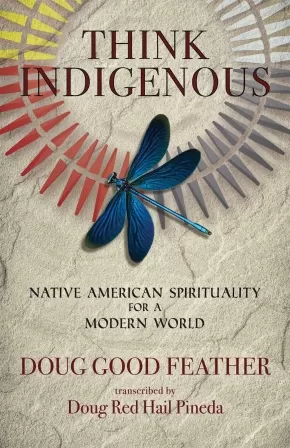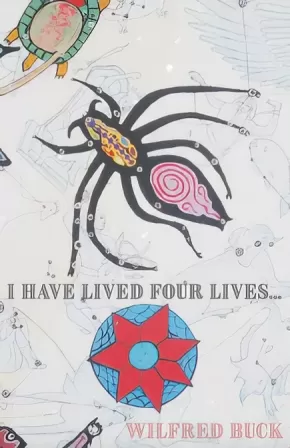
Healing
1
-
15
of
85 Results;
Sort By
Go To
of 6
Sharing the Light: Stories and Reflections
$26.99
Format:
Hardcover
Text Content Territories:
Indigenous Canadian; First Nations; Cree (Nehiyawak); Sioux; Lakota;
Reading Level: N/A
ISBN / Barcode: 9781487013547
Synopsis:
Synopsis:
Uplifting stories, vignettes, and reflections to inspire gratitude, love, joy, and hope in navigating life in a changing, challenging world.
This beautiful and welcoming book can be read cover to cover or used as a daily source of guidance, providing gentle wisdom that inspires and empowers. Through the lens of five transformative practices - gratitude, love, joy, happiness, and hope - bestselling author Monique Gray Smith weaves together short stories, poignant reflections, and thoughtful questions that invite readers to pause and reconnect with their inner light. And as an Indigenous author, Monique brings her cultural wisdom and unique perspective to each offering.
Sharing the Light is a powerful reminder that when we embrace our light and share it with the world, that energy not only transforms us but ripples out to uplift everyone around us.
Additional Information
208 pages | 5.00" x 7.75" | Hardcover
From the Ashes: My Story of Being Métis, Homeless, and Finding My Way (PB)
$13.99
Format:
Paperback
Text Content Territories:
Indigenous Canadian; First Nations; Cree (Nehiyawak); Métis;
Reading Level: N/A
ISBN / Barcode: 9781668213728
Synopsis:
Synopsis:
In this extraordinary and inspiring debut memoir, Jesse Thistle, once a high school dropout and now a rising Indigenous scholar, chronicles his life on the streets and how he overcame trauma and addiction to discover the truth about who he is.
If I can just make it to the next minute... then I might have a chance to live; I might have a chance to be something more than just a struggling crackhead.
From the Ashes is a remarkable memoir about hope and resilience, and a revelatory look into the life of a Métis-Cree man who refused to give up.
Abandoned by his parents as a toddler, Jesse Thistle briefly found himself in the foster-care system with his two brothers, cut off from all they had known. Eventually the children landed in the home of their paternal grandparents, but their tough-love attitudes meant conflicts became commonplace. And the ghost of Jesse’s drug-addicted father haunted the halls of the house and the memories of every family member. Struggling, Jesse succumbed to a self-destructive cycle of drug and alcohol addiction and petty crime, spending more than a decade on and off the streets, often homeless. One day, he finally realized he would die unless he turned his life around.
In this heartwarming and heartbreaking memoir, Jesse Thistle writes honestly and fearlessly about his painful experiences with abuse, uncovering the truth about his parents, and how he found his way back into the circle of his Indigenous culture and family through education.
An eloquent exploration of what it means to live in a world surrounded by prejudice and racism and to be cast adrift, From the Ashes is, in the end, about how love and support can help one find happiness despite the odds.
Awards
- 2020 Indigenous Voices Awards Winner for Published Prose in English
- Winner, Kobo Emerging Writer Prize Nonfiction
- Winner, High Plains Book Awards
- An Indigo Book of the Year
Reviews
“From the Ashes hits you like a punch in the gut. It’s an unflinching, heartrending and beautifully written story of survival against seemingly impossible odds. But it’s also a book that should make you furious. Thistle paints a vivid portrait of a country seemingly incapable of doing right by Indigenous youth or by those struggling with homelessness, addiction and intergenerational trauma. That he survived to tell this story is truly a miracle. Still, one question haunts me after finishing this powerful and devastating book: How do we ensure that the next generation isn’t forced to navigate a broken system that takes their lives for granted and fails them at every turn? My greatest hope, then, is that From the Ashes will be the wakeup call Canada needs.” — IAN MOSBY, historian and author of Food Will Win the War
Educator Information
Caution: Deals with mature subject matter.
Additional Information
368 pages | 6.00" x 9.00"
Decolonization and Me: Conversations about Healing a Nation and Ourselves
$30.99
Text Content Territories:
Indigenous Canadian; First Nations; Salish; Interior Salish; Secwepemc (Shuswap); Stswecem'c Xgat'tem; Métis;
Reading Level: N/A
ISBN / Barcode: 9781778540684
Synopsis:
Synopsis:
This book invites readers to step into a space of reflection on your personal relationship with truth, reconciliation, and Orange Shirt Day.
Written in response to the increase of residential school denialism, Phyllis Webstad and Kristy McLeod have collaborated to create a book that encourages readers to face their own biases. This book challenges readers through a series of sensitive conversations that explore decolonization, Indigenization, healing, and every person’s individual responsibility to truth and reconciliation. Centered around the Orange Shirt Day movement, and a National Day for Truth and Reconciliation, these conversations encourage readers to unpack and reckon with denialism, biases, privilege, and the journey forward, on both a personal and national level.
Within each chapter, Phyllis Webstad draws on her decade of experience (sharing her Orange Shirt Story on a global level and advocating for the rights of Indigenous Peoples) to offer insights on these topics and stories from her personal journey, which co-author and Métis scholar, Kristy McLeod, helps readers to further navigate. Each section includes real denialist comments taken from social media and Kristy's analysis and response to them. Through empathy-driven truth-telling, this book offers an opportunity to witness, reflect, heal, and be intentional about the seeds we hope to plant for the future, together.
Additional Information
350 pages | 5.70" x 8.25" | Hardcover
Plant Teachings from My Auntie: Gathering Coast Salish Plants for Medicine, Textiles, Nourishment, and Ceremony
$24.99
Format:
Paperback
Text Content Territories:
Indigenous Canadian; First Nations; Salish; Coast Salish; Snuneymuxw ;
Reading Level: N/A
ISBN / Barcode: 9781774060322
Synopsis:
Synopsis:
A Snuneymuxw ethnobotany guide grounded in Indigenous knowledge and deep ancestral connection to the land.
Plant Teachings from My Auntie: Gathering Coast Salish Plants for Medicine, Textiles, Nourishment, and Ceremony is a richly illustrated compendium of the many culturally significant wild foods and herbal remedies found in the traditional territory of the Snuneymuxw First Nation.
Each entry features plant descriptions complete with both their Hul'q'umi'num and botanical names, typical native habitat, and traditional uses. Particular attention is paid to the sacred Western Red Cedar or "tree of life." The book also offers a selection of healing recipes; tips for respectful, sustainable harvesting; ethical and responsible preparation techniques; and a guide to local gathering sites.
Snu'y'ulh refers to teachings handed down through generations. Snuneymuxw Elder and Knowledge Keeper Geraldine Manson, whose traditional name is C'tasi:a, draws on the sacred knowledge passed on to her by her "Auntie Ellen," Dr. Ellen White, also known as Kwulasulwut. Central to these learnings is the fundamental concept or protocol of honoring gifts from the land by gathering and preparing in ways that respect the history, culture, spirituality, and Indigenous knowledge associated with each species.
This powerful work is a rare treasure that will appeal to those seeking to foster greater cultural understanding and ecological responsibility while deepening their commitment to meaningful reconciliation.
Additional Information
96 pages | 9.00" x 7.50" | Paperback
Plants Have So Much to Give Us, All We Have to Do Is Ask: Anishinaabe Botanical Teachings
$31.99
Artists:
Editors:
Format:
Paperback
Text Content Territories:
Indigenous Canadian; First Nations; Anishinaabeg;
Reading Level: N/A
ISBN / Barcode: 9780816696765
Synopsis:
Synopsis:
Mary Siisip Geniusz has spent more than thirty years working with, living with, and using the Anishinaabe teachings, recipes, and botanical information she shares in Plants Have So Much to Give Us, All We Have to Do Is Ask. Geniusz gained much of the knowledge she writes about from her years as an oshkaabewis, a traditionally trained apprentice, and as friend to the late Keewaydinoquay, an Anishinaabe medicine woman from the Leelanau Peninsula in Michigan and a scholar, teacher, and practitioner in the field of native ethnobotany. Keewaydinoquay published little in her lifetime, yet Geniusz has carried on her legacy by making this body of knowledge accessible to a broader audience.
Geniusz teaches the ways she was taught—through stories. Sharing the traditional stories she learned at Keewaydinoquay’s side as well as stories from other American Indian traditions and her own experiences, Geniusz brings the plants to life with narratives that explain their uses, meaning, and history. Stories such as “Naanabozho and the Squeaky-Voice Plant” place the plants in cultural context and illustrate the belief in plants as cognizant beings. Covering a wide range of plants, from conifers to cattails to medicinal uses of yarrow, mullein, and dandelion, she explains how we can work with those beings to create food, simple medicines, and practical botanical tools.
Plants Have So Much to Give Us, All We Have to Do Is Ask makes this botanical information useful to native and nonnative healers and educators and places it in the context of the Anishinaabe culture that developed the knowledge and practice.
Additional Information
344 pages | 7.00" x 10.00" | Paperback
Voices of Our Ancestors: Teachings from the Wisdom Fire
$33.95
Format:
Paperback
Text Content Territories:
Indigenous American; Native American; Cherokee; Eastern Band of Cherokee;
Reading Level: N/A
ISBN / Barcode: 9781645473046
Synopsis:
Synopsis:
Follow the beauty way to generate happiness and good relationships, fulfill your life purpose, manifest peace and abundance, and renew the planet.
Dhyani Ywahoo’s powerful, prophetic, and compassionate voice returns in this new expanded edition of the book that’s sold over 90K copies.
This beloved book has resonated with thousands of spiritual explorers and other readers wishing to ground their activities in harmony and well-being. In this expanded edition, Dhyani Ywahoo continues to be a guiding source of wisdom for all who walk the Beauty Way. As the twenty-seventh generation to carry the Ywahoo lineage of the Eastern Tsalagi/Cherokee Nation, she shares the precious oral teachings of her people that remain timely, powerful, and accessible.
Weaving together Buddhist and Native American traditions, Voices of Our Ancestors offers practical ways of transforming obstacles into happiness and good relationships, fulfilling our life purpose, manifesting peace and abundance, and renewing the planet. The Tsalagi worldview teaches us to infuse each moment with the three fundamental principles of intention, compassion, and doing good. We have the opportunity to let go of fear and aggression and begin to live a life of enlightened consciousness, with tools like:
- Meditations;
- Healing rituals;
- Instructions for working with crystals; and
- Teachings on how to practice generosity and harmony.
Our journey is enriched by Dhyani Ywahoo’s new reflections on the expansion of Native American communities in the United States and how they have cooperated to bring Indigenous voices into larger conversations about conflict resolution, the climate crisis, and the need for inclusion of underrepresented groups and individuals. With a voice that is powerful, prophetic, and compassionate, Dhyani Ywahoo calls on us to become peacekeepers in our hearts and in the world.
Reviews
“Venerable Dhyani Ywahoo embodies wisdom of the Native and Tibetan traditions. Hers is a lifetime spent generously sharing these sacred teachings with students all over the world. I celebrate this new edition of her book, which will hold these precious methods to walk in this world with wisdom and compassion now and for future generations.”—Lama Konchok Sonam, spiritual director of Drikung Meditation Center
“These wisdom teachings are profoundly life-changing for spiritual growth no matter your tradition. Venerable Dhyani Ywahoo is an exceptional spiritual leader and teacher, having forged her own way through traditional Cherokee and Vajrayana teachings. She compassionately embraces her students with her wisdom, offering unique and significant insights. Voices of Our Ancestors is a timeless work and as such it lends support and inspiration continually.”—Shan Watters, artist and author of Mothering the Divine
Additional Information
352 pages | 6.00" x 8.99" | Paperback
Everything Is a Story: Reclaiming the Power of Stories to Heal and Shape Our Lives
$33.99
Format:
Hardcover
Text Content Territories:
Indigenous;
Reading Level: N/A
ISBN / Barcode: 9781587436635
Synopsis:
Synopsis:
Stories are alive--and shape our personal and collective identities, for better and worse.
In Everything Is a Story, award-winning Indigenous author Kaitlin B. Curtice considers how stories take root in our lives like an acorn becoming an oak tree. Following a story's life cycle, Curtice explores how narratives shape both our inner lives and broader communities. Which stories should we pass on to future generations--and which can we finally let go?
This book invites readers to explore the power of story to liberate or limit, to build compassion or create division. With gentle insight that speaks to people across the spiritual spectrum, Curtice guides us through the art of storytelling as a path toward healing and connection.
With contemplative poetry woven throughout and a foreword by Simran Jeet Singh, Everything Is a Story offers a hope-filled framework for reshaping our lives by reclaiming stories of courage, wholeness, and deep-rooted compassion.
Reviews
"A beautiful book about the stories that make us who we are and connect us to the earth, the cosmos, and one another."- Eboo Patel, founder and president, Interfaith America; author of We Need to Build: Field Notes for Diverse Democracy
"As most good communicators know, we best understand our world not through data or evidence or reason but mostly through stories. That's why this is such a potentially powerful book for those who read it!" - Bill McKibben, author of Here Comes the Sun
Educator Information
Table of Contents
Foreword by Simran Jeet Singh
As We Begin
Part 1: Seed
1. The Origins of Stories
2. Oak Stories
3. Stories Are Mirrors
4. The Shape of Stories
Part 2: Sprout
5. Gathering Stories
6. Stories of Faith and Religion
7. Returning to Our Body's Stories
8. A Maze of Stories
Part 3: Sapling
9. Stories of Aging and Happiness
10. Stories We Tell About One Another
11. Stories of Myth and Othering
12. Stories of Sports and Exploration
Part 4: Mature Tree
13. Stories Are Labels
14. Stories of Land and Food
15. Stories Told in Public
16. Stories of Belief and Letting Go
Part 5: Dropping Seeds
17. Interfaith, Expansive, Futuristic Stories
18. Merging Stories
19. Stories for Healing
20. The Future of Storytelling
Additional Information
208 pages | 5.50" x 8.50" | Hardcover
Revered Roots: Ancestral Teachings and Wisdom of Wild, Edible, and Medicinal Plants
$32.99
Format:
Hardcover
Text Content Territories:
Indigenous Canadian; Métis;
Reading Level: N/A
ISBN / Barcode: 9780760393253
Synopsis:
“Revered Roots is a profound journey that gracefully and colorfully intertwines Indigenous wisdom with practical plant knowledge, offering a guide to reconnect with Nature’s green gifts. LoriAnn's heartfelt teachings inspire readers to honor and deepen their sacred relationship with the Earth.”—Dr. Kelly Ablard, Founder and CEO, Airmid Institute
Synopsis:
With Indigenous Métis herbalist LoriAnn Bird as your guide, connect with the ancestral wisdom of over 90 wild edible and medicinal plants from across North America.
A purposeful and powerful reference to the lessons, nourishment, healing, and history of our “plant teachers,” Revered Roots shares guidance on exploring, gathering, and reclaiming these long-revered plants as food and medicine. Separated into two sections, LoriAnn first reveals her own journey to understanding and respecting our plant elders. She offers teachings and lessons about remembering our relationship to the plants around us and our responsibility to the earth that sustains us.
The second part of the book is filled with insightful illustrated plant profiles detailing the identification, uses, and Indigenous folklore of some of the continent’s most treasured ancestral plants. Included are edible and medicinal bark, berries, and buds from trees and shrubs, as well as foliage, flowers, and fronds from herbs, “weeds,” and wildflowers; some native to the continent, others introduced generations ago.
Learn about the gifts our Rooted Nation of plants has to offer, including:
- Evergreen tips from spruces, pines, and firs
- Hawthorn berries, leaves, and flowers
- Plantain seeds and foliage
- Oswego tea leaves and blooms
- Slippery elm bark
- Motherwort flowers, stems, and leaves
- Black cohosh roots and rhizomes
- Marshmallow root
- Cottonwood buds and bark
- Plus dozens more
Reclaiming our natural rhythms and connections to the earth we walk on is essential to our health and well-being, both as individuals and as a community. One simple way to do that is by appreciating, respecting, and seeking to understand the plants around us.
Reviews
“With elegant reverence, LoriAnn Bird weaves connections among ancestral herbalist teachings from several lineages. She invites us into our own personal journey with plant medicine, giving us lessons on how to respect and honor the power of plants and their human knowledge keepers. She carefully and lovingly attributes each piece of teaching to its source. This book is a powerful legacy that we need more than ever at this time of healing and reconciliation. May its words fly into the world and land softly in the hearts of all who need them.”—Lori Weidenhammer, author of Victory Gardens for Bees: A DIY Guide to Saving the Bees
“Revered Roots is truly an essential work of art that imparts the sacredness of each plant, in each harvesting step and in the interspecies relationships with all of life. The authentic and grounded nature of LoriAnn Bird comes through the pages to connect us with a sense of belonging and reverence.”—Katrina Blair, founder of Turtle Lake Refuge; author of The Wild Wisdom of Weeds
“LoriAnn Bird, in her book Revered Roots, creates a beautiful story about our plant relatives with our history woven between the leaves of each page. She highlights each being and allows them to tell their story, including who they are, their benefits, uses, ways to eat, look-alikes, and what makes them unique. It's like looking at an old family album and finally knowing who each person is and what their spirit has to offer the world. The book, complete with information about our relatives, wrapped its warm arms around me as I nestled in to read each page, excited to learn more about family. LoriAnn’s voice provides a continuous honoring of our ancestors, our brilliance, and our resilience.”—Jenna Jasek, Shuswap (Kenpesq't) Band member, Director of Indigenous Learning, The Outdoor Learning School
“Revered Roots is a profound journey that gracefully and colorfully intertwines Indigenous wisdom with practical plant knowledge, offering a guide to reconnect with Nature’s green gifts. LoriAnn's heartfelt teachings inspire readers to honor and deepen their sacred relationship with the Earth.”—Dr. Kelly Ablard, Founder and CEO, Airmid Institute
“LoriAnn Bird weaves stories of plants into a tapestry of vivid imagery and teachings, allowing us to experience earth medicine in a way we never have before. Like a family gathered around the table exchanging stories of cherished ones, Lori Ann’s plant musings draw us into an intimate connection with our More-Than-Human Kin. From a small moment in a back alley in East Vancouver to hundreds of years of history from around the world, Revered Roots feels like an equal blend of encyclopedia, history book, and love letter. Get to know plants in a truly profound way through the words of a master storyteller, sister, friend, mother, and plant protector.”—Stephanie Rose, founder of Garden Therapy; author of Garden Alchemy and The Regenerative Garden
“This is a beautiful book on every level; the gorgeous drawings and painting of plants, the photography and images throughout, but also the words and the feelings on each page. Intensely moving and remarkably practical, deeply personal and filled with worldly wisdom, this book offers the reader a glimpse into a whole new way of seeing the nature. With a plant centered focus, through a biophilia lens, the author invites us to re-evaluate and re-vision our own relationships with plants and the natural world. This book is destined to be a classic.”—Chanchal Cabrera MSc, FNIMH, Medical Herbalist; Horticulture Therapist; author of Holistic Cancer Care
“LoriAnn has put a lifetime of collected knowledge into a work that connects people to plants in ways both honorable and honest. Revered Roots extols both the practical and sacred uses of the plants we see around us, while also nurturing our respect for our More-Than-Human Kin and our responsibility to the greater world. It has been a pleasure to be a teacher and herbal mentor to LoriAnn for many years.”—Don Ollsin, Master Herbalist; Conscious Spiritual Elder, Alchemy of Aging; author of Pathways to Healing
Additional Information
240 pages | 8.00" x 9.55" | Hardcover
The Seven Generations and The Seven Grandfather Teachings
$18.50
Format:
Paperback
Text Content Territories:
Indigenous American; Native American; Anishinaabeg; Ojibwe (Chippewa);
Reading Level: N/A
ISBN / Barcode: 9798988531302
Synopsis:
Synopsis:
Discover the profound wisdom of the Anishinaabe/Ojibwe people in The Seven Generations and The Seven Grandfather Teachings. In this captivating journey, you will immerse yourself in timeless teachings that illuminate the way to interconnectedness and interdependence. As the spiritual translation of the sacred laws, the Seven Grandfather teachings guide us towards Mino-bimaadiziwin, 'the good life' - a life of harmony, free from contradiction or conflict. Prepare to embark on a transformative path of peace and balance, where ancestral knowledge offers invaluable lessons for a fulfilling existence.
Additional Information
90 pages | 5.00" x 8.00" | Paperback
52 Ways to Reconcile: How to Walk with Indigenous Peoples on the Path to Healing
$25.00
Format:
Hardcover
Text Content Territories:
Indigenous Canadian;
Reading Level: N/A
ISBN / Barcode: 9780771019357
Synopsis:
Synopsis:
From bestselling author of the Misewa Saga series David A. Robertson, this is the essential guide for all Canadians to understand how small and attainable acts towards reconciliation can make an enormous difference in our collective efforts to build a reconciled country.
52 Ways to Reconcile is an accessible, friendly guide for non-Indigenous people eager to learn, or Indigenous people eager to do more in our collective effort towards reconciliation, as people, and as a country. As much as non-Indigenous people want to walk the path of reconciliation, they often aren’t quite sure what to do, and they’re afraid of making mistakes. This book is the answer and the long overdue guide.
The idea of this book is simple: 52 small acts of reconciliation to consider, one per week, for an entire year. They’re all doable, and they’re all meaningful. All 52 steps take readers in the right direction, towards a healthier relationship between Indigenous and non-Indigenous people and a time when we are past trauma. By following these steps, we can live in stronger and healthier communities equally, and respectfully, together.
Additional Information
224 pages | 5.00" x 8.00" | Hardcover
Flourishing Kin: Indigenous Wisdom for Collective Well-Being
$26.99
Format:
Paperback
Text Content Territories:
Indigenous;
Reading Level: N/A
ISBN / Barcode: 9781649632043
Synopsis:
Synopsis:
From Indigenous scholar Yuria Celidwen comes a first-of-its-kind book about our aspiration for sustainable, collective flourishing through Indigenous wisdom, traditions, and practices that bridge Indigenous and Western knowledges and ways.
How do we cultivate happiness? When facing the monumental challenges of our world, we often end up disconnecting in order to focus on our mental health. Dr. Yuria Celidwen explains this focus on our own state of mind alone is precisely why so many of us struggle to flourish. “What’s been overlooked is the Indigenous perspective of relationality,” she says. “It is the understanding that happiness is only possible in community, when we cultivate our relationships toward all kin, from human to more-than-human, and to our living Earth.”
Dr. Celidwen’s research shows the tremendous benefit of integrating Indigenous approaches into our approach to well-being, while recognizing the gains made by Western positive psychology, mindfulness, and neuroscience. In Flourishing Kin, she identifies seven key principles found in Indigenous cultures worldwide that embrace virtue, ethical living, and spirituality. Each principle—Kin Relationality, Body Seed, Senshine, Heartfelt Wisdom, Ecological Belonging, Collective Well-Being, and Reemergence—is a seed to flourishing kin, and reveals how we can overcome isolation and climate anxiety, nourish healthy relationships with our communities and environment, and build strong foundations of well-being that elevate our life choices for the benefit of our whole planet.
Sustainable collective flourishing goes beyond optimism or resilience. Offering opportunities for exploration, reflection, and personalized insight, here you’ll find shared storytelling, cultural tradition, and other forms of enhanced contemplative practice like ritual, music, movement, and art to support your journey. Through poetic expression and authentic truth telling, Dr. Celidwen invites us to experience a path to fulfillment that allows us to meet the world in all its complexity with reverence and joyous commitment to participate in the flourishing of all living beings.
Additional Information
256 pages | 6.05" x 8.95" | Paperback
All the Little Monsters: How I Learned to Live with Anxiety
$25.99
Format:
Paperback
Text Content Territories:
Indigenous Canadian; First Nations; Cree (Nehiyawak); Swampy Cree ; Norway House Cree Nation;
Reading Level: N/A
ISBN / Barcode: 9781443472401
Synopsis:
Synopsis:
With humour, warmth and heartbreaking honesty, award-winning author David A. Roberston explores the struggles and small victories of living with chronic anxiety and depression, and shares his hard-earned wisdom in the hope of making other people’s mental health journeys a little less lonely
From the outside, David A. Robertson looks as if he has it all together—a loving family, a successful career as an author, and a platform to promote Indigenous perspectives, cultures and concerns. But what we see on the outside rarely reveals what is happening inside. Robertson lives with “little monsters”: chronic, debilitating health anxiety and panic attacks accompanied, at times, by depression. During the worst periods, he finds getting out of bed to walk down the hall an insurmountable task. During the better times, he wrestles with the compulsion to scan his body for that sure sign of a dire health crisis.
In All the Little Monsters, Robertson reveals what it’s like to live inside his mind and his body and describes the toll his mental health challenges have taken on him and his family, and how he has learned to put one foot in front of the other as well as to get back up when he stumbles. He also writes about the tools that have helped him carry on, including community, therapy, medication and the simple question he asks himself on repeat: what if everything will be okay?
In candidly sharing his personal story and showing that he can be well even if he can’t be “cured,” Robertson hopes to help others on their own mental health journeys.
Additional Information
272 pages | 6.00" x 9.00" | Paperback
Broken Home, Healed Nest
$20.99
Format:
Paperback
ISBN / Barcode: 9781778540578
Synopsis:
Synopsis:
“Because you believed me, I began to believe myself. Because of you, I am here.”
[Trigger Warning] Please note this book addresses sensitive topics including suicide, substance abuse, and family violence. While these emotionally challenging realities are held thoughtfully, and with love, this story may be triggering.
Jessica has contemplated suicide for a while now. Grappling with the reverberating grief of losing her beloved grandmother and the trauma of a broken home, young Jessica is reaching a place so far from herself, her community, and the traditional Indigenous teachings she once lived by, it is frightening.
When it all becomes too much, Jessica attempts to take the final step over the ledge. What follows is a journey through the sacred spaces within memory, song, and the spirit world, guided by two playful tricksters—eagles, who happen to have lifetimes of wisdom to share.
With a love of riddles and soaring beyond the edges of possibility, they turn and twist Jessica’s reality until she can finally ground herself in what she has known all along, and allow the love, strength and voice of her beloved grandmother to once again be remembered and heard. The trajectory of Jessica’s life will be changed forever.
From Hopi Elder, Pershlie "Perci" Ami, and Street Outreach Worker, Anthony Goulet, comes a creative, sensitive, and thoughtful approach to the topic of suicide. Combined, they have over forty years of experience in youth development and suicide prevention.
Educator Information
Recommended for ages 14+
Trigger Warning: Please note this book addresses sensitive topics including suicide, substance abuse, and family violence. While these emotionally challenging realities are held thoughtfully, and with love, this story may be triggering.
Additional Information
109 pages | 5.50" x 7.50" | Paperback
i heard a crow before i was born
$22.95
Format:
Paperback
Reading Level: N/A
ISBN / Barcode: 9781773104089
Synopsis:
Synopsis:
i heard a crow before i was born.
i heard tsó:ka’we before i was born.
i heard a crow before i was born opens with a dream-memory that transforms into a stark, poetic reflection on the generational trauma faced by many Indigenous families. Jules Delorme was born to resentful and abusive parents, in a world in which he never felt he belonged. Yet, buoyed by the love shown to him by his tóta (grandmother) and his many animal protectors, Delorme gained the strength to reckon with his brutal childhood and create this transformative and evocative memoir.
Across chapters that tell of his troubled relationships, Delorme unwraps the pain at the centre of his own story: the residential schools and the aftershocks that continue to reverberate.
In this stunning testament to the power of storytelling — to help us grieve and help us survive — Delorme tells the story of his spirit walk as he embraces the contradictions of his identity. As he writes, “i heard a crow before i was born is a man looking back, and dreaming back, and seeing that life, in whatever form it takes, however harsh it might seem, is beautiful.”
Reviews
“Jules Delorme is an unconventional storyteller and writer. His exploration of self through the eyes of being ‘half white on the reserve and half Indian in the city’ speaks to his vast experience as a Kanien’kehá:ka man in Canada. Jules has lived and continues to live the life of a man who has leapt over every hurdle that life places in front of him. To be able to write of his life in the way that he has shows his determination. Thank you, Jules, for taking us all on your spirit walk.” — Norma Dunning, award-winning author of Tainna, July 2024
“Sometimes difficult, always honest, i heard a crow before i was born takes us on a journey of trauma, and then healing. Told in a storytelling style, Delorme’s is a tale of survival.” — Drew Hayden Taylor, author of Motorcycles & Sweetgrass, July 2024
Additional Information
164 pages | 5.00" x 8.00" | Paperback
Journey to Eloheh: How Indigenous Values Lead Us to Harmony and Well-Being
$37.99
Format:
Hardcover
Text Content Territories:
Indigenous American; Native American; Shoshone; Eastern Shoshone Tribe; Cherokee; United Keetoowah Band ;
ISBN / Barcode: 9781506496979
Synopsis:
Synopsis:
Rooted in ten Indigenous values, this thoughtful, holistic book-written by Randy Woodley, a Cherokee descendant recognized by the Keetoowah Band, and Edith Woodley, an Eastern Shoshone tribal member-helps readers learn lifeways that lead to true wholeness, well-being, justice, and harmony.
The pursuit of happiness, as defined by settlers and enshrined in the American Dream, has brought us to the brink: emotionally, spiritually, socially, and as a species. We stand on a precipice, the future unknown. But Indigenous people carry forward the values that humans need to survive and thrive. In Journey to Eloheh, Randy and Edith Woodley help readers transform their worldviews and lifestyles by learning the ten values of the Harmony Way. These ten values, held in common across at least forty-five Indigenous tribes and nations, can lead us toward true well-being: harmony, respect, accountability, history, humor, authenticity, equality, friendship, generosity, and balance. By learning, converting to, and cultivating everyday practices of Eloheh--a Cherokee word meaning harmony and peace--we have a chance at building well-being and a sustainable culture.
In this riveting account of their own journeys toward deepening their indigeneity and embodying harmony, Edith, an activist-farmer, and Randy, a scholar, author, teacher, and wisdom-keeper, help readers learn the lifeways of the Harmony Way. The journey to Eloheh holds promise for all of us, Indigenous or not.
We know the Western worldview is at odds with a sustainable Earth, a just common life, and personal well-being. Together we can convert to another way of living--one that recognizes the Earth as sacred, sees all creation as related, and offers ancestral values as the way forward to a shared future.
Reviews
"Edith and Randy Woodley's passion and persistence to create spaces of community and care are inspiring. A blend of storytelling, theology, and guidance harvested directly through Indigenous wisdom, Journey to Eloheh reminds us to stay true to the path of kinship and belonging, and to never give up on justice and peacemaking in the world. I highly recommend this book for anyone who is searching for a way to be a better relative on this earth or to fight for a better reality for future generations. This book will help you get there." --Kaitlin B. Curtice, award-winning author of Native and Living Resistance
"Spiritual journey as autobiography: like a Navajo weaver, Journey to Eloheh skillfully connects Native American theology and personal experience into a way of life. If you are looking for your own path, Edith and Randy Woodley's story is a good place to begin." --Steven Charleston, author of Ladder to the Light, Spirit Wheel, and We Survived the End of the World
"There is so much we can all learn from the wisdom of Indigenous culture. In this book, Randy and Edith Woodley invite us to join them on a journey of learning a different way of living that leads to wholeness, abundance, and peace. They generously share their life experience and spiritual insights to show us a better path toward harmony with the whole of creation. I highly recommend it!" --Dr. Brenda Salter McNeil, author of Becoming Brave and Roadmap to Reconciliation 2.0
"A practical antidote to despair, hopelessness, and aimless consumption, this book offers a robust and healing path to well-being for all of us. The Woodleys are wise and trustworthy guides for restoration and embodied goodness within the community of creation." --Sarah Bessey, author of Field Notes for the Wilderness: Practices for an Evolving Faith
"Randy and Edith Woodley write with insight and wisdom from their years of experience. They have prophetic voices that draw attention to the needs of all of our relatives. Their voices rise out of difficult situations in which they have done more than survive; they are showing how to flourish in an ever-changing world." --Ray Aldred, director of the Indigenous Studies Program, Vancouver School of Theology
"For many years, I have considered Randy Woodley one of my teachers. His books, lectures, and personal conversations--together with his humble, yet bold, spirit as a teacher--have enriched and challenged me. His new book, co-written with his wise and eloquent wife, Edith, is a masterpiece, a book I would recommend to anyone and everyone. It beautifully combines the sharing of their life-story with the essence of their lifeway, articulated in ten powerful Indigenous values that are as deeply spiritual as they are deeply practical." --Brian McLaren, author, teacher, and activist
Educator Information
Keywords / Themes: Well-Being; the Harmony Way (Eloheh); Ten Eloheh Values; Indigenous Knowledge, Indigenous Values; Personal Growth.
Additional Information
264 pages | 5.75" x 8.75" | Hardcover
Alha Disnii - My Truth: Words from a Wet'suwet'en Woman
$19.99
Format:
Paperback
Text Content Territories:
Indigenous Canadian; First Nations; Dene; Dakelh (Carrier); Wet’suwet’en; Gitxsan (Gitksan);
ISBN / Barcode: 9781778540417
Synopsis:
Synopsis:
My name is Corinne George. I am Wet’suwet’en with Gitksan lineage from the Gidimt’en (Bear) Clan. This is my truth, and through sharing my truth, I strive for ongoing healing and to continue the journey of reconciliation. As a Wet’suwet’en woman born and raised on what is now known as the “Highway of Tears,” it was not uncommon to receive inferior treatment. There were even times when I was overtly targeted. It has been very common for people to outwardly refuse to acknowledge my existence as a human being. I was always afraid to share my truth because I did not want to be stigmatized. I am the daughter of a residential school survivor and a WWII veteran. As a result of colonization, I have encountered incredible levels of trauma. I need to acknowledge and speak my truth. As I share my pain and experiences, I have gathered self-awareness and every time I speak about my trauma, I heal a little bit more. I do not deserve to be treated like I do not exist. Despite the historical impacts of colonization and trauma, my connections to my ancestral ways and my identity have been critical. This is how I survived and how I strive to thrive.
Educator Information
Recommended for ages 16+.
Additional Information
128 pages | 5.10" x 7.50" | Paperback
We Are the Medicine: Surviving the City Vol. 3
$21.95
Artists:
Format:
Paperback
Text Content Territories:
Indigenous Canadian; First Nations; Cree (Nehiyawak); Anishinaabeg;
ISBN / Barcode: 9781774921104
Synopsis:
Synopsis:
Miikwan and Dez are in their final year of high school. Poised at the edge of the rest of their lives, they have a lot to decide on. Miikwan and her boyfriend, Riel, are preparing for university, but Dez isn’t sure if that’s what they want for their future.
Grief and anger take precedence over their plans after the remains of 215 children are found at a former residential school in British Columbia. The teens struggle with feelings of helplessness in the face of injustice. Can they find the strength to channel their frustration into action towards a more hopeful future?
We Are the Medicine is the moving final volume of the best-selling Surviving the City series.
Reviews
"Tasha's graphic novel gives us an unflinching view of youth sovereignty and the reclamation of Indigenous philosophy and sacred spaces in Winnipeg's core. Guided by an Elder, the friends at the centre of the story confront uncomfortable truths that have sustained our colonial past, riding on the edge of emotions and activism to uphold the integrity of their ancestors. A must-read for all youth who want to build an equitable, just society." — Elder Albert McLeod, author of Between the Pipes
“A fantastic read for teens to learn about Indigenous issues through a clear and accurate representation.” — Youth Services Book Review
Educator & Series Information
Recommended for ages 12 to 18.
This is the third volume in the Surviving the City graphic novel series, which is also part of the Debwe Series.
Surviving the City is a contemporary graphic novel series about young Indigenous women navigating their way in an urban environment. It includes:
Surviving the City
From the Roots Up
We Are the Medicine
A Teacher Guide is available: Surviving the City Teacher Guide: Exploring Identity, Allyship, and Social Action for Meaningful Change in Grades 7-12
Recommended in the Indigenous Books for Schools catalogue as a valuable resource for English Language Arts and Social Studies in grades 8 to 12.
Caution: This work's topics include residential schools, death, violence, police brutality, and racism.
Themes: Coming of Age, Community, Connection to Culture, Healing, Residential Schools.
Additional Information
64 pages | 6.50" x 10.00" | Paperback
The Animal Elders Oracle: A 44-Card Deck & Guidebook of Indigenous Wisdom & Healing Medicine
$25.99
Artists:
Text Content Territories:
Indigenous Canadian; First Nations; Anishinaabeg; Ojibway;
Reading Level: N/A
ISBN / Barcode: 9781401978181
Synopsis:
Synopsis:
Tap into guidance from the animal spirit realm and connect to ancestral wisdom with this transformative 44-card deck and guidebook from Indigenous Medicine Woman and author of You Are the Medicine and The Sacred Medicine Oracle, Asha Frost.
Everything is interconnected. All of creation carries a spirit. Indigenous people have always had a sacred relationship with animals and treated them as honored elders. Animal beings in the spirit realm are part of our spiritual support team as allies and medicine keepers, ready to help, waiting to remind you of your humanity and deep connection to the natural world.
With 44 Elder Animals depicted in a richly detailed traditional Ojibway art style, each card carries its own unique medicine. This deck offers meaningful insights and messages to guide you on your path both from the universe and in the voice of an animal spirit guide from the lands of the Ojibway people—from Elder Artic Hare to Elder Wolf. Whether you're seeking clarity, healing, or a deeper connection to your ancestral lineage, these cards provide a bridge to the spirit world.
Use this deck your rituals and ceremonies, do readings with it for your clients and friends, and share it with your communities. As the medicine ripples out, hold Indigenous people in your heart and honor how their history continues to impact your current reality.
Additional Information
128 pages | 3.50" x 5.00" | Card Deck & Guidebook
Red Tarot: A Decolonial Guide to Divinatory Literacy
$34.95
Format:
Paperback
Text Content Territories:
Indigenous American;
Reading Level: N/A
ISBN / Barcode: 9781623178475
Synopsis:
Synopsis:
Designed to be used with any deck, Red Tarot is a radical praxis and decolonized oracle that moves beyond self-help and divination to reclaim tarot for liberation, self-determination, and collective healing.
Red Tarot speaks to anyone othered for their identity or ways of being or thinking—LGBTQIA2S+ and BIPOC folks in particular—presenting the tarot as a radical epistemology that shifts the authority of knowing into the hands of the people themselves.
Author Christopher Marmolejo frames literacy as key to liberation, and explores an understanding of tarot as critical literacy. They show how the cards can be read to subvert the dynamics of white supremacist-capitalist-imperialist-patriarchy, weaving historical context and spiritual practice into a comprehensive overview of tarot.
Situating tarot imagery within cosmologies outside the Hellenistic frame—Death as interpreted through the lens of Hindu goddess Chhinnamasta, the High Priestess through Aztec goddess Coyolxauhqui—Marmolejo’s Red Tarot is a profound act of native reclamation and liberation. Each card’s interpretation is further bolstered by the teachings of Toni Morrison, bell hooks, Paulo Freire, José Esteban Muñoz, and others, in an offering that integrates intersectional wisdom with the author’s divination practice—and reveals tarot as an essential language for liberation.
Reviews
“Red Tarot passionately reindigenizes the symbolism of each tarot card and demonstrates the importance of this reclamation. Along with illuminating bold interpretations of the tarot, it pulls the reader into each tarot narrative in a brilliant and poetic manner. I loved this book!”—Erika Buenaflor, MA, JD, author of Cleansing Rites of Curanderismo and Veneration Rites of Curanderismo
“Red Tarot is a volume that truly, as in its own words, readies its reader to come as ‘part prophet, part poet, part political participant.’ This is a generous book. Marmolejo has done something truly wonderful here. They have made a book that makes it possible for you to engage with the future in the best way possible which is with the feeling of blowing your brain hole open. Anyone who hungers for more possibility when faced with the prospect of reading the future should keep Red Tarot with them. I know that it will be very dear to me. Red Tarot shows you how to find a sense of almost unnerving freedom in the future. This book treats reading as a medicine.”—Alice Sparkly Kat, author of Postcolonial Astrology
“After a pandemic’s collective deadness, I’m looking for resources that help us all claim collective aliveness. You’re holding one of the finest contributions to help find a portal to Eros; the rapture of aliveness, and the transcendent support of red reading. Christopher Marmolejo’s Red Tarot is an invaluable, extensively researched tool that helps you remember the language, symbols, and fields of somatic and intuitive knowledge acquisition. It’s a highly integrative work; successfully, accessibly merging the best of Christopher’s teachers in the decolonial and divinatory fields. Red Tarot achieves the work’s goal of Indigenous reclamation, reimagining, and regeneration in this pivotal time.”—Colin Bedell, astrologer and founder of QueerCosmos
Additional Information
448 pages | 5.98" x 8.96" | Paperback
A Beginner's Guide to Native American Herbal Medicine: 75 Natural Remedies for Wellness and Balance
$25.99
Format:
Paperback
Text Content Territories:
Indigenous American; Native American;
Reading Level: N/A
ISBN / Barcode: 9798886501278
Synopsis:
Synopsis:
Improve your well-being with Native American herbal medicine
Native American herbal medicine offers a powerful way to connect with the earth and heal naturally—and with this handbook of Native American herbs, you can learn all about herb uses and their restorative effects. Written by an Indigenous herbalist, this guide shows you how to responsibly use traditional plants to treat anxiety, colds, inflammation, and more.
This standout among books about herbs and healing will help you:
- Learn about a time-honored practice—Discover the origins and healing secrets of Native American herbalism, its traditional and modern uses, and how tools like the medicine wheel teach us about our relationship with the natural world.
- Identify the essential herbs—Explore the healing properties of medicinal herbs for wellness, from anise hyssop to yerba santa.
- Make 75 natural remedies—Ease physical and emotional ailments with Native American remedies, like Memory Support Tea, Stress-Induced Headache Tincture, and Antibacterial Healing Herb Liniment.
Tap into traditional wisdom with this Native American herbal medicine book for health and well-being.
Reviews
"A beautiful jumping-off point for anyone who is interested in practical herbalism. Angela organizes the wisdom of Native American herbalism in a way that is accessible for anyone to pick up and fold into their everyday life." —Kathleen Lee, acupuncturist, herbalist, and spiritual business mentor
"Angela is a wise and fierce protector of plant medicine and traditions of healing. Her first book, A Beginner's Guide to Native American Herbal Medicine, is a meaningful, accessible resource for readers who seek to ground themselves in understanding and build an herbal practice of integrity." —Graham Wesley
Additional Information
165 pages | 7.50" x 9.25" | full-colour photographs throughout | Paperback
Wisdom of the Elders Oracle: A 44-Card Deck and Guidebook
$28.99
Artists:
Text Content Territories:
Indigenous American; Native American; Mi'kmaq;
Reading Level: N/A
ISBN / Barcode: 9781401971755
Synopsis:
Synopsis:
A 44-card oracle deck focusing on the teachings, traditions, and wisdom of the Mi’kmaq people, meant to help the reader create a deeper connection with the spirit world and Mother Earth.
Indigenous wisdom is sacred and has been shared for many generations by the Elders of the spirit world, and it is through their wisdom that we bridge the physical world to the spirit world. When you use these oracle cards you are walking in the world with the wisdom of the Elders. These teachings were meant to be shared with you, and to help you through your daily and spiritual life.
This deck is a tool meant to support you on your journey through life; the purpose of sharing these teachings is to help you grow and develop spiritually, within your own personal connection to Spirit, and to your loved ones on the other side.
The cards include—but are not limited to—teachings and concepts like:
Indigenous wisdom is sacred and has been shared for many generations by the Elders of the spirit world, and it is through their wisdom that we bridge the physical world to the spirit world. When you use these oracle cards you are walking in the world with the wisdom of the Elders. These teachings were meant to be shared with you, and to help you through your daily and spiritual life.
This deck is a tool meant to support you on your journey through life; the purpose of sharing these teachings is to help you grow and develop spiritually, within your own personal connection to Spirit, and to your loved ones on the other side.
The cards include—but are not limited to—teachings and concepts like:
- the Seven Grandfather Teachings
- the Four Sacred Fire Teachings
- the Four Sacred Medicines
- the Milky Way
- Talking Circle
- Two-Spirit
- Spirit Totem Animal
- Power Totem Animal
- Wigwam.
Additional Information
120 pages | 3.94" x 5.44" | 44-Card Deck and Guidebook
Held by the Land Deck: 45 Ways to Use Indigenous Plants for Healing & Nourishment - Guidebook + Cards
$25.99
Format:
Paperback
Text Content Territories:
Indigenous Canadian; First Nations; Salish; Coast Salish; Squamish;
Reading Level: N/A
ISBN / Barcode: 9781577154440
Synopsis:
Synopsis:
Have Indigenous plant knowledge at your fingertips with this gorgeously illustrated card deck from Leigh Joseph, an ethnobotanist and a member of the Squamish Nation.
Plants can be a great source of healing as well as nourishment, and the practice of growing and harvesting from trees, flowering herbs, and other plants is a powerful way to become more connected to the land. The Indigenous Peoples of North America have long traditions of using native plants as medicine as well as for food. Held by the Land Deck includes 45 cards of indigenous plants and their properties and a 48-page booklet to guide you along the way. Here are some of the things you will find:
- Tips to build your own home apothecary
- Notes on how to mindfully harvest and connect to the land you’re on
- Recipes for infused oils and salves
- A botanical glossary to help out with some of the more technical language
- Checklists for safe and sustainable harvesting
This beautifully illustrated card deck includes plants that are culturally significant to the Pacific Northwest, including Western Red Cedar, Devil’s Club, Broad-Leaved Plantain, Camas, Wapato, and Red Laver. Special features in the booklet include recipes for food and beauty products along with stories and traditions around the plants.
This elegant, full-color card deck and booklet is your go-to guide for Indigenous plants and will give you new insights into the power of everyday nature.
Additional Information
48 pages | 4.50" x 5.90" | 45 Cards and 48-Page Booklet
The Dreaming Path: Indigenous Ideas to Help Us Change the World
$34.99
Format:
Hardcover
Text Content Territories:
Indigenous Australian; Worimi;
Reading Level: N/A
ISBN / Barcode: 9780063321267
Synopsis:
Synopsis:
Drawing on ancient Aboriginal wisdom, a leading Indigenous Australian healer and an Elder show you how to find contentment, purpose, and healing by learning to reconnect with your story—and ultimately the universe.
Dr. Paul Callaghan belongs to the land of the Worimi people who live north of Sydney along the east coast of Australia. Raised to live the western way, Paul found himself mired in deep depression—struggling to find meaning while raising a family and working as a senior education executive. Desperate to break free of his restlessness, he made a drastic change: He “went bush” and connected with his elders to “walk Country” and learn Aboriginal traditions. Twenty years later, Paul is an expert healer and spiritual guide eager to share the wisdom of his ancestors and the insights he discovered on his life journey.
In this affirming, empowering, and transformative book, he teaches you about the Dreaming Path—a connection to the earth and the universe, past, present, and future that has always been there, but can be difficult to find amid the chaos of the modern world.
The Dreaming Path offers tips, practices, inspiration, and motivation that can enable you to achieve a profound state of mind, body, and spirit wellness, while encouraging you to think deeply about essential life topics, including:
- Caring for our place and the importance of story
- Relationships, sharing, and unity
- Love, gratitude, and humility
- Learning and living your truth
- Inspiration and resilience
- Being present and healing from the past
- Contentment
- Leading
The Dreaming Path reminds us that we are our stories; by learning to recognize that we are all an indelible part of something much larger, we can begin to heal ourselves and our communities.
Additional Information
320 pages | 6.00" x 9.00" | Hardcover
Mangilaluk: A Graphic Memoir about Friendship, Perseverance, and Resiliency
$18.95
Artists:
Format:
Paperback
Text Content Territories:
Indigenous Canadian; Inuit;
ISBN / Barcode: 9781774507384
Synopsis:
Synopsis:
“Some children are born into the world and are home as soon as they come Earthside. Others spend their lifetimes searching for a home, a place to belong, a place where they are safe. I am one of those children.”
After running away from residential school, Bernard Andreason and his two best friends begin a harrowing 130-kilometre journey from Inuvik to Tuktoyaktuk, one which only Bernard would survive. In this heartbreaking and beautifully told graphic memoir, Bernard recounts his time in residential school and the tragic journey that took the lives of his two best friends. We then follow Bernard as he returns home, haunted by his past and struggling to find his place. Despite enduring more challenges into adulthood, Bernard never stops pursuing healing and higher learning, and he finds a support network that helps him. His story shows us that the possibility of finding a safe and loving home exists, and it is something every child deserves.
Mangilaluk is an extraordinarily affecting new addition to Qinuisaarniq ("resiliency"), a collection of books created to educate readers about the history and impacts of residential schools.
Educator Information
Recommended for ages 14 to 18.
Mangilaluk exposes readers to the experience and perspective of an Inuk residential school survivor. It also shares a powerful story of friendship, personal growth and self-forgiveness, and the value of finding a supportive community.
This book is part of the Qinuisaarniq program. Qinuisaarniq (“resiliency”) is a program created to educate Nunavummiut and all Canadians about the history and impacts of residential schools, policies of assimilation, and other colonial acts that have affected the Canadian Arctic.
Each resource has been carefully written and reviewed to include level-appropriate opportunities for students to learn about colonial acts and policies that have affected Inuit. These acts and policies created long-lasting impacts on Inuit individuals and communities, which are still being felt today.
Additional Information
100 pages | 7.25" x 11.00" | Paperback
Life in the City of Dirty Water: A Memoir of Healing (PB)
$19.95
Format:
Paperback
Text Content Territories:
Indigenous Canadian; First Nations; Cree (Nehiyawak); Swampy Cree ; Mathias Colomb First Nation;
ISBN / Barcode: 9780735240087
Synopsis:
Synopsis:
An electrifying memoir that braids together the urgent issues of Indigenous rights and environmental policy, from a nationally and internationally recognized activist and survivor.
There have been many Clayton Thomas-Mullers: The child who played with toy planes as an escape from domestic and sexual abuse, enduring the intergenerational trauma of Canada's residential school system; the angry youngster who defended himself with fists and sharp wit against racism and violence, at school and on the streets of Winnipeg and small-town British Columbia; the tough teenager who, at 17, managed a drug house run by members of his family, and slipped in and out of juvie, operating in a world of violence and pain.
But behind them all, there was another Clayton: the one who remained immersed in Cree spirituality, and who embraced the rituals and ways of thinking vital to his heritage; the one who reconnected with the land during summer visits to his great-grandparents' trapline in his home territory of Pukatawagan in northern Manitoba.
And it's this version of Clayton that ultimately triumphed, finding healing by directly facing the trauma that he shares with Indigenous peoples around the world. Now a leading organizer and activist on the frontlines of environmental resistance, Clayton brings his warrior spirit to the fight against the ongoing assault on Indigenous peoples' lands by Big Oil.
Tying together personal stories of survival that bring the realities of the First Nations of this land into sharp focus, and lessons learned from a career as a frontline activist committed to addressing environmental injustice at a global scale, Thomas-Muller offers a narrative and vision of healing and responsibility.
Reviews
“Clayton Thomas-Müller—Cree poet and environmental warrior dedicated to decolonization—has crafted an awesome, lyrical memoir that captures the experiences of urban Indigenous youth facing poverty, drugs, alcohol, domestic violence, and juvenile detention. Most, like Clayton, inherited the intergenerational trauma of residential schools. Clayton found a way to escape trauma and poverty in order to fight for his people. This beautifully written book is required reading for everyone who cares about justice for the survivors of genocide who continue to survive in colonized conditions. It offers a path to liberation that may also be the way to saving the earth and humanity itself.” — Roxanne Dunbar-Ortiz, author of An Indigenous Peoples’ History of the United States
“This book is an adventure story in every way. A life of drug dealers and crackhouses and guns; leaving that behind for a remarkable time of spiritual and personal growth; and there’s the ongoing adventure of working desperately to protect the planet and its sacred places. Clayton Thomas-Müller relates these adventures in ways that will help everyone through unfamiliar terrain—he’s a trustworthy guide and an authentic storyteller. In a moment when Indigenous people around the world are coming to the very fore of the most crucial fights, this volume will broaden your understanding in powerful ways. And you won’t forget its scenes any time soon.”—Bill McKibben, co-founder of 350.org and author of Earth and Oil and Honey
Additional Information
240 pages | 5.19" x 7.97" | Paperback
A Quiet Storm
$12.95
Format:
Paperback
Text Content Territories:
Indigenous American; Native American;
ISBN / Barcode: 9781570674150
Synopsis:
Synopsis:
In this final book of the hi-lo Sydney's Journey series, Sydney has at last come to terms with the anguish of being a bully and being bullied herself. But when her boyfriend reveals that he is looking forward to going away to college, another issue arises: Sydney finds herself dealing with deep separation anxiety. She believes he is deserting her--just like her father did. Sydney retreats into herself and pushes her boyfriend and others away. When her best friend points out that her response is not healthy, Sydney decides to attend a Native women's sharing circle with her mother. Here Sydney realizes that the quiet storm troubling her heart can finally be healed.
Reviews
"A well-grounded reluctant reader title exploring the power of relationships." - Kirkus Reviews
Educator & Series Information
The publisher recommends this book for ages 12 to 18.
This book is part of the PathFinders Collection of Indigenous Hi-Lo- novels. Interest level is pre-teen on up.
The PathFinders series of Hi-Lo (high interest, low readability) novels offers the following features:
• Indigenous teen protagonists
• Age-appropriate plots
• 2.5 – 4.5 Reading Level
• Contemporary and historical fiction
• Indigenous authors
The PathFinders series is from an American publisher. Therefore, Indigenous terminology in the PathFinders books is not the same as Canadian Indigenous terminology. This prompts a useful teaching moment for educators in discussing appropriate terminology use in Canada.
This book is Book 3 in the Sydney's Journey series.
Additional Information
110 pages | 4.70" x 7.20" | Paperback
Magnificent Magnetic Me
$19.99
Artists:
Format:
Paperback
Text Content Territories:
Indigenous Canadian;
ISBN / Barcode: 9781990297434
Synopsis:
Synopsis:
Métis writer and educator Nikki Soliman walks children through the importance of mental health and wellness in Magnificent Magnetic Me. This book examines the importance of embracing the tools needed to stay positive. It teaches about the power of thoughts and words and the energy we attract.
Educator Information
Recommended for grades 5 to 8.
Additional Information
32 Pages | Paperback
Mitji- Let's Eat!: Mi'kmaq Recipes from Sikniktuk
$29.95
Artists:
Format:
Paperback
Text Content Territories:
Indigenous Canadian; First Nations; Mi'kmaq;
Reading Level: N/A
ISBN / Barcode: 9781774712276
Synopsis:
Synopsis:
An intergenerational source of wisdom and knowledge, Mitji combines a cultural history of Mi'kmaw cuisine with a practical cookbook.
The welcome call of "Mitji" can be heard by Mi'kmaw children, hungry workers, family, and friends when dinner is ready. This book, too, is an invitation to celebrate and practice Mi'kmaq foodways: the recipes passed down from one generation to the next; the way traditional foods and medicines are gathered, hunted, and cooked; and the lived experience of ancestors and Elders about how to nourish the spirit and body through Mi'kmaw culture and knowledge.
Mitji – Let's Eat! Mi'kmaq Recipes from Sikniktuk offers over 30 traditional and popular Mi'kmaq recipes, arranged seasonally — like Fish Cakes and Eel Stew in spring; Blueberry "Poor Man's Cake" and Stuffed Salmon in summer; Swiss Steak with Moose Meat and Apple Pie in fall; and Molasses Cake and Wiusey Petaqn in winter.
Each recipe is contextualized with its origins, contributor information, food stories, and detailed preparation instructions, and throughout the book are short essays on Mi'kmaw cuisine, drawing a picture of how Mi'kmaq foodways were influenced by colonization, on the one hand, and how food became and remains a significant vehicle of resistance, on the other. Whether a novice or well-seasoned cook, Mitji is a feast for the reader: a bountiful introduction to, and celebration of, Mi'kmaw cuisine.
Educator Information
Subjects & Curriculum Links: Indigenous Cooking, Seasons, Indigenous History, Mi'kmaw Culture and Cuisine
This book has received the Authentic Indigenous Text label because of the Indigenous contributions to this work. It is up to readers to determine if it's an authentic resource for their purposes.
Additional Information
240 pages | 7.50" x 9.25" | Photos by Patricia Bourque, 50+ Coloured Images
The Sacred Space: A Collection of Writing & Art from the Eastern Door
$25.95
Format:
Hardcover
Text Content Territories:
Indigenous Canadian; First Nations; Mi'kmaq; Elsipogtog First Nation;
Reading Level: N/A
ISBN / Barcode: 9781773661230
Synopsis:
Synopsis:
In this intimate collection of writing and art, Brian J. Francis invites us to explore the sacred space within. Through vision, prayer, and dream work, Francis channels messages from the ancestors to help us contemplate themes of nature, mortality, truth, and reconciliation. Eclipsing space and time, Francis words and art resonate with deep texture, hope, colour, and mastery. The result is a shimmering testament to his Mi'kmaq ancestors, and a pledge to the next generation. Guiding us beyond spirit and nation boundaries, this eloquent read is ideal for anyone seeking sanctuary, sacred space, and a comfortable seat at their own altar.
Additional Information
88 pages | 8.00" x 8.00" | Hardcover
The Sacred Medicine Oracle: A 56-Card Deck and Guidebook
$35.99
Artists:
Text Content Territories:
Indigenous Canadian; First Nations; Anishinaabeg;
Reading Level: N/A
ISBN / Barcode: 9781401966782
Synopsis:
Synopsis:
Connect with healing traditions, stories, ancestral wisdom, and animal guidance through this 56-card deck and guidebook from Indigenous Medicine Woman and author of You Are the Medicine, Asha Frost.
Indigenous people know the power of earth and spirit medicine. Everything in our natural world is interconnected and sacred. The plants, animals, rocks, waters, stars, moon are our relations, our kin. Every aspect of creation has a spirit. This spirit lives in all things and informs us how to walk in a good way or, in Anishinaabemowin, Mino-bimaadiziwin.
The Sacred Medicine Oracle was birthed to invite readers into a conscious and respectful relationship with medicine teachings, awakening a daily connection to your own inner divinity, power, and wisdom. From the powerful remembering of "Past Life Medicine" to the promise of miracles with "Jingle Dress," each of the 56 cards depicts ceremony, traditions, moon phases, animal guides, and plant allies, all of them alive with energy and blessed with healing intentions from the ancestors.
Additional Information
144 pages | 4.88" x 5.38" | 56 Cards and Guidebook
Killing the Wittigo: Indigenous Culture-Based Approaches to Waking Up, Taking Action, and Doing the Work of Healing
$29.95
Format:
Paperback
ISBN / Barcode: 9781770417243
Synopsis:
Synopsis:
An unflinching reimagining of Legacy: Trauma, Story, and Indigenous Healing for young adults.
Written specifically for young adults, reluctant readers, and literacy learners, Killing the Wittigo explains the traumatic effects of colonization on Indigenous people and communities and how trauma alters an individual’s brain, body, and behavior. It explores how learned patterns of behavior — the ways people adapt to trauma to survive — are passed down within family systems, thereby affecting the functioning of entire communities. The book foregrounds Indigenous resilience through song lyrics and as-told-to stories by young people who have started their own journeys of decolonization, healing, and change. It also details the transformative work being done in urban and on-reserve communities through community-led projects and Indigenous-run institutions and community agencies. These stories offer concrete examples of the ways in which Indigenous peoples and communities are capable of healing in small and big ways — and they challenge readers to consider what the dominant society must do to create systemic change. Full of bold graphics and illustration, Killing the Wittigo is a much-needed resource for Indigenous kids and the people who love them and work with them.
Educator Information
Recommended for ages 12 to 17.
The adult version of this book can be found here: Legacy: Trauma, Story, and Indigenous Healing
Additional Information
160 pages | 5.50" x 8.50" | Paperback
Living Resistance: An Indigenous Vision for Seeking Wholeness Every Day
$32.49
Format:
Hardcover
Text Content Territories:
Indigenous American; Native American; Anishinaabeg; Potawatomi; Indigenous;
Grade Levels: 12; University/College;
ISBN / Barcode: 9781587435713
Synopsis:
Synopsis:
In an era in which "resistance" has become tokenized, popular Indigenous author Kaitlin Curtice reclaims it as a basic human calling. Resistance is for every human who longs to see their neighbors' holistic flourishing. We each have a role to play in the world right where we are, and our everyday acts of resistance hold us all together.
Curtice shows that we can learn to practice embodied ways of belonging and connection to ourselves and one another through everyday practices, such as getting more in touch with our bodies, resting, and remembering our ancestors. She explores four "realms of resistance"--the personal, the communal, the ancestral, and the integral--and shows how these realms overlap and why all are needed for our liberation. Readers will be empowered to seek wholeness in whatever spheres of influence they inhabit.
Reviews
"Readers will find abundant wisdom in this accessible guide."--Publishers Weekly
"Curtice is a fresh and intelligent voice."--Library Journal
Educator Information
Table of Contents
Introduction
Part 1: The Personal Realm
1. What Is Resistance?
2. Art as Resistance
3. Presence as Resistance
4. Embodiment as Resistance
5. Radical Self-Love as Resistance
Part 2: The Communal Realm
6. Childcare as Resistance
7. Ethical Practices as Resistance
8. Solidarity Work as Resistance
9. Protecting the Land as Resistance
10. Kinship as Resistance
Part 3: The Ancestral Realm
11. Decolonizing as Resistance
12. Generosity as Resistance
13. Intergenerational Healing as Resistance
14. Liminality as Resistance
15. Facing History as Resistance
Part 4: The Integral Realm
16. Integration as Resistance
17. Interspiritual Relationship as Resistance
18. Prayer as Resistance
19. Dreaming as Resistance
20. Lifelong Resistance
Includes Acknowledgements, Notes, and an Author Bio at the end of the work.
Additional Information
208 pages | 5.50" x 8.50" | Hardcover
Madoodiswan: Sweatlodge
$22.99
Artists:
Format:
Paperback
Text Content Territories:
Indigenous Canadian; First Nations; Anishinaabeg;
ISBN / Barcode: 9781990297328
Synopsis:
Synopsis:
Mary and Leonard say our Ancestors passed Adizookaanan, our stories, on for thousands of years, filling the long winter nights with our oral history, philosophy, and ceremonies. Madoodiswaan, Sweatlodge, is the story of the four sisters who spoke to the beavers and in accordance with Creator's Law constructed a Sweat Lodge that would help to heal the Anishinaabeg.
Educator Information
The publisher of this work recommends it for all grade levels.
Additional Information
64 Pages | Paperback
An Anthology of Monsters: How Story Saves Us from Our Anxiety
$14.99
Format:
Paperback
Text Content Territories:
Indigenous Canadian; Métis;
Grade Levels: 12; University/College;
ISBN / Barcode: 9781772126822
Synopsis:
Synopsis:
An Anthology of Monsters by Cherie Dimaline, award-winning Métis author of The Marrow Thieves, is the tale of an intricate dance with life-long anxiety. It is about how the stories we tell ourselves—both the excellent and the horrible—can help reshape the ways in which we think, cope, and ultimately survive. Using examples from her published and forthcoming books, from her mère, and from her own late-night worry sessions, Dimaline choreographs a deeply personal narrative about all the ways in which we cower and crush through stories. Witches emerge as figures of misfortune but also empowerment, and the fearsome Rougarou inspires obedience, but also belonging and responsibility. Dimaline reveals how to collect and curate these stories, how they elicit difficult and beautiful conversations, and how family and community is a place of refuge and strength.
Educator Information
Keywords / Subjects: Stories; Anxiety; Panic; Rougarou; Family; Community; Métis; Witches; Insomnia; Coping; Worries; Grandparents; Empower; Belonging; Responsibility; Mental Health; Biography; Essays; Canadian Literature
Additional Information
64 pages | 5.25" x 9.00" | Paperback
Seeds from the Sacred Feminine: A 52-Card Wisdom Deck with Handbook
$47.99
Artists:
Text Content Territories:
Indigenous Canadian; Métis;
Reading Level: N/A
ISBN / Barcode: 9781642509564
Synopsis:
Synopsis:
Embrace Your Divine Feminine Energy
Create new rituals and self-care habits with this oracle deck. These sacred inspirational cards inspired by land-based practises of the Metis people serve as a daily mental healer.
Re-energize and connect to the Metis culture. These oracle cards are the perfect way to help you slow down and awaken to the energy around and inside you. Andrea Menard writes beautifully while invoking connections to the land and indigenous teachings; use these cards as friendly reminders to dive into your divine feminine energy. Andrea Menard is a Metis woman whose Michif ancestry originates from St. Laurent, Manitoba, Canada. She is deeply influenced by Sacred Elements and guided by the teachings of her ancestral Grandmothers.
Enjoy colorful and beautifully layered art. These unique images bring emotional healing and a deep awakening to divine feminine energy. Sacred women, men, and gender-fluid individuals will find wisdom on every card. Enjoy 52 cards with beautiful images of original artwork by Metis painter, Leah Marie Dorion. Leah is an interdisciplinary Metis artist raised in Prince Albert, Saskatchewan, who views her Metis heritage as a unique bridge connecting all people to a greater knowledge.
Inside, you'll find:
• Ancient wisdom and teachings from Andrea Menard set to transform you
• Beautifully layered art from Leah Marie Dorion on a deck of cards set to awaken you
• A handbook guide set to spark your divine feminine energy
If you need a gift for the sacred woman in your life, you'll love Seeds of the Sacred Feminine.
Reviews
"What a feast! This collection of inspirational cards invoking the wisdom of the feminine is created entirely by Indigenous women, permeated by the fierce and tender heart of the Grandmothers. The artwork is glorious, the teachings are both luminous and grounded, the combination truly transformational. I will be gifting these cards, with the accompanying handbook, again and again."- Mirabai Starr, author of Wild Mercy and God of Love
"The Seeds from the Sacred Feminine is a delicate, gentle, and kind teaching that will help you get in touch with our sacred grandmothers, our guides for being in tune with nature and mother earth. Using this wisdom will draw you into the natural laws of Earth by helping you to return to emotional and mental harmony based on balancing yourself with the four sacred directions. The Messages are a special and comfortable way to be with the spirits and nature."- Barbara Hand Clow, author of Awakening the Planetary Mind and Alchemy of Nine Dimensions
"These are beautiful inspirational cards. They follow the medicine wheel paying attention to the land, water, wind and sun. May we all pay heed and allow our souls to rest upon any given day, to meditate on the thought and allow spirit to carry us to that place of wholeness." - Louise B. Halfe, author of The Crooked Good and Burning in This Midnight
"What a wonderfully refreshing idea. Truly inspired by the spirit of the female life-giver as it yields the tremendous opening of the passageway to life to be lived to its fullest potential. As has been prophesied the female energy is leading the way to renewal and prosperity as the Creator had intended." - Tom McCallum, Metis Elder, lodge keeper
"The Seeds From The Sacred Feminine wisdom deck is a powerful invitation to build a deeper relationship with all of creation. Each card carries beautiful medicine teachings that invoke a great understanding of all aspects of self. This deck carries a vibration of grace, love and truth. I highly recommend this gorgeous deck to all who wish to connect to Indigenous Earth and Spirit wisdom. It will enhance your divine gifts, remind you of your inherent knowing, and delight you with its beautiful artwork."- Asha Frost, Anishinaabekwe bestselling author of You are The Medicine
Additional Information
89 page handbook | 52 Cards | 4.00" x 6.00"
Held by the Land: A Guide to Indigenous Plants for Wellness
$32.99
Format:
Hardcover
Text Content Territories:
Indigenous Canadian; First Nations; Salish; Coast Salish; Squamish;
ISBN / Barcode: 9781577152941
Synopsis:
Synopsis:
Author Leigh Joseph, an ethnobotanist and a member of the Squamish Nation, provides a beautifully illustrated essential introduction to Indigenous plant knowledge.
Plants can be a great source of healing as well as nourishment, and the practice of growing and harvesting from trees, flowering herbs, and other plants is a powerful way to become more connected to the land. The Indigenous Peoples of North America have long traditions of using native plants as medicine as well as for food. Held by the Land honors and shares some of these traditions, offering a guide to:
- Harvesting herbs and other plants and using them topically
- North American plants that can treat common ailments, add nutrition to your diet, become part of your beauty regime, and more
- Stories and traditions about native plants from the author's Squamish culture
- Using plant knowledge to strengthen your connection to the land you live on
Early chapters will introduce you to responsible ways to identify and harvest plants in your area and teach you how to grow a deeper connection with the land you live on through plants. In the plant profiles section, common plants are introduced with illustrations and information on their characteristics, range, how to grow and/or harvest them, and how to use them topically and as food. Special features offer recipes for food and beauty products along with stories and traditions around the plants.
This beautiful, full-color guide to Indigenous plants will give you new insights into the power of everyday plants.
Additional Informaiton
192 pages | 8.00" x 9.25" | Hardcover
Black Water: Family, Legacy, and Blood Memory (PB)
$21.00
Format:
Paperback
Text Content Territories:
Indigenous Canadian; First Nations; Cree (Nehiyawak); Swampy Cree ; Norway House Cree Nation;
Reading Level: n/a
ISBN / Barcode: 9781443457781
Synopsis:
Synopsis:
A son who grew up away from his Indigenous culture takes his Cree father on a trip to their family's trapline, and finds that revisiting the past not only heals old wounds but creates a new future.
The son of a Cree father and a non-Indigenous mother, David A. Robertson was raised with virtually no knowledge or understanding of his family’s Indigenous roots. His father, Don, spent his early childhood on a trapline in the bush northeast of Norway House, Manitoba, where his first teach was the land. When his family was moved permanently to a nearby reserve, Don was not permitted to speak Cree at school unless in secret with his friends and lost the knowledge he had been gifted while living on his trapline. His mother, Beverly, grew up in a small Manitoba town with not a single Indigenous family in it. Then Don arrived, the new United Church minister, and they fell in love.
Structured around a father-son journey to the northern trapline where Robertson and his father will reclaim their connection to the land, Black Water is the story of another journey: a young man seeking to understand his father's story, to come to terms with his lifelong experience with anxiety, and to finally piece together his own blood memory, the parts of his identity that are woven into the fabric of his DNA.
Reviews
“An instant classic that demands to be read with your heart open and with a perspective widened to allow in a whole new understanding of family, identity, and love.” — Cherie Dimaline
“When someone lives their life in a good way, the Haisla call them handsome people. David A. Robertson’s biography is the perfect example of someone who takes care with his words and speaks respectfully; he tackles identity and racism, family bonds and breaks, with nuance and honesty. The power of this approach makes Black Water an essential and timely book.” — Eden Robinson, bestselling author of The Trickster Trilogy
Additional Information
288 pages | 5.31" x 8.00" | Paperback
The Seven Circles: Indigenous Teachings for Living Well
$36.99
Format:
Hardcover
Text Content Territories:
Indigenous American; Native American; Sioux; Pima (Akimel O'odham); Osage; Haudenosaunee (Iroquois); Seneca; Cayuga; Anishinaabeg; Ojibwe (Chippewa); Turtle Mountain Anishinaabe;
Grade Levels: 12; University/College;
ISBN / Barcode: 9780063119208
Synopsis:
Synopsis:
In this revolutionary self-help guide, two beloved Native American wellness activists offer wisdom for achieving spiritual, physical, and emotional wellbeing rooted in Indigenous ancestral knowledge.
When wellness teachers and husband-wife duo Chelsey Luger and Thosh Collins founded their Indigenous wellness initiative, Well for Culture, they extended an invitation to all to honor their whole self through Native wellness philosophies and practices. In reclaiming this ancient wisdom for health and wellbeing—drawing from traditions spanning multiple tribes—they developed the Seven Circles, a holistic model for modern living rooted in timeless teachings from their ancestors. Luger and Collins have introduced this universally adaptable template for living well to Ivy league universities and corporations like Nike, Adidas, and Google, and now make it available to everyone in this wise guide.
The Seven Circles model comprises interconnected circles that keep all aspects of our lives in balance, functioning in harmony with one another. They are:
- Food
- Movement
- Sleep
- Ceremony
- Sacred Space
- Land
- Community
In The Seven Circles, Luger and Collins share intimate stories from their life journeys growing up in tribal communities, from the Indigenous tradition of staying active and spiritually centered through running and dance, to the universal Indigenous emphasis on a light-filled, minimalist home to create sacred space. Along the way, Luger and Collins invite readers to both adapt these teachings to their lives as well as do so without appropriating and erasing the original context, representing a critical new ethos for the wellness space. Each chapter closes with practical advice on how to engage with the teachings, as well as wisdom for keeping that particular circle in harmony with the others.
With warmth and generosity—and 75 atmospheric photographs by Collins throughout—The Seven Circles teaches us how to connect with nature, with our community, and with ourselves, and to integrate ancient Indigenous philosophies of health and wellbeing into our own lives to find healing and balance.
Reviews
“A life-changing holistic guide to wellness rooted in empowerment, resiliency, and ‘good medicine.’ This book is for any human being searching for wellness solutions in a chaotic world, a true antidote to colonization.” — Vina Brown, Indigenous Scholar, Entrepreneur, Artist, and Professor of Indigenous Studies at Northwest Indian College
“The Seven Circles is a true innovation in Indigenous thought; it brings our shared heritage and traditional teachings to life. Truly inspiring. Readers will find their journey to be a motivating guide for self-transformation.” — Taiaiake Alfred, Mohawk Philosopher
“While the term ‘wellness’ has been co-opted and diluted by (primarily white) social media influencers in recent years, Luger and Collins are recentering the conversation around how to use Indigenous cultural values, foods, and modalities of movement as tools for spiritual, mental, physical, and emotional healing.” — Vanity Fair
“[Two of the] faces in the health and wellness scene that are pushing for inclusivity, justice, and kindness, toppling old conventions to make their own…Luger and Collins rewrite modern narratives regarding Native health while addressing complex histories and ongoing disparities.” — Outside magazine
“Spellbinding. This may be the first book I’ve ever read that made me stop and decide, “I’m making this change now!” Seven Circles opened my eyes to a way of life that is tested by time, guided by nature, and urgently needed today." — Christopher McDougall, author of Born to Run, Natural Born Heroes, and Running with Sherman
“Wisdom abounds in this stimulating offering.” — Publishers Weekly
“Luger and Collins provide a range of sensible, informed, accessible guidance for both small- and large-scale lifestyle changes. An appealing manual for healing the self through Indigenous traditions.” — Kirkus Reviews
Additional Information
256 pages | 7.00" x 9.00" | 75 Colour Photos | Hardcover
Walking Together, Working Together: Engaging Wisdom for Indigenous Well-Being
$34.99
Editors:
Format:
Paperback
Text Content Territories:
Indigenous Canadian;
ISBN / Barcode: 9781772125375
Synopsis:
Synopsis:
This collection takes a holistic view of well-being, seeking complementarities between Indigenous approaches to healing and Western biomedicine. Topics include traditional healers and approaches to treatment of disease and illness; traditional knowledge and intellectual property around medicinal plant knowledge; the role of diet and traditional foods in health promotion; culturally sensitive approaches to healing work with urban Indigenous populations; and integrating biomedicine, alternative therapies, and Indigenous healing in clinical practice. Throughout, the voices of Elders, healers, physicians, and scholars are in dialogue to promote Indigenous community well-being through collaboration. This book will be of interest to scholars in Indigenous Studies, medicine and public health, medical anthropology, and anyone involved with care delivery and public health in Indigenous communities.
Contributors: Darlene Auger, Dorothy Badry, Margaret David, Meda DeWitt, Hal Eagletail, Gary L. Ferguson III, Marc Fonda, Annie Goose, Angela Grier (Pioohksoopanskii), Leslie Main Johnson, Allison Kelliher, Patrick Lightning, Mary Maje, Maria Mayan, Ruby E. Morgan, Richard T. Oster, Ann Maje Raider, Camille (Pablo) Russell, Ginetta Salvalaggio, Ellen L. Toth, Harry Watchmaker
Additional Information
272 pages | 6.00" x 9.00" | Paperback
Restoring the Kinship Worldview: Indigenous Voices Introduce 28 Precepts for Rebalancing Life on Planet Earth
$28.95
Format:
Paperback
Text Content Territories:
Indigenous American; Native American; Indigenous;
Reading Level: N/A
ISBN / Barcode: 9781623176426
Synopsis:
Synopsis:
Selected speeches from Indigenous leaders around the world--necessary wisdom for our times, nourishment for our collective, and a path away from extinction toward a sustainable, interconnected future.
Indigenous worldviews, and the knowledge they confer, are critical for human survival and the wellbeing of future generations. Editors Wahinkpe Topa (Four Arrows) and Darcia Narvaez present 28 powerful excerpted passages from Indigenous leaders, including Mourning Dove, Robin Wall Kimmerer, Winona LaDuke, and Xiuhtezcatl Martinez. Accompanied by the editors’ own analyses, each chapter reflects the wisdom of Indigenous worldview precepts like:
• Egalitarian rule versus hierarchical governance
• A fearless trust in the universe, instead of a fear-based culture
• The life-sustaining role of ceremony
• Emphasizing generosity and the greater good instead of pursuing selfish goals and for personal gain
• The laws of nature as the highest rules for living
The editors emphasize our deep need to move away from the dominant Western paradigm--one that dictates we live without strong social purpose, fails to honor the earth as sacred, leads with the head while ignoring the heart, and places individual “rights” over collective responsibility. Restoring the Kinship Worldview is rooted in an Indigenous vision and strong social purpose that sees all life forms as sacred and sentient--that honors the wisdom of the heart, and grants equal standing to rights and responsibilities.
Inviting readers into a world-sense that expands beyond perceiving and conceiving to experiencing and being, Restoring the Kinship Worldview is a salve for our times, a nourishment for our collective, and a holistic orientation that will lead us away from extinction toward an integrated, sustainable future.
Reviews
“Humans have a particular ecological niche, a role as the custodial species of this earth. We must return our species to this niche within the next decade, or perish. This book is a perfect place to start—the foundation is good relations, making kin both human and nonhuman—and here we have story from a gathering of some of the finest Indigenous thinkers on the planet. Four Arrows and Darcia Narvaez have a particular way of bringing the right people together for such purposes.” —TYSON YUNKAPORTA, author of Sand Talk, senior research fellow at Deacon University, woodcarver, and poet
“Mahalo Four Arrows and Darcia Narvaez for this collection, this eloquence and grace through time so we can recognize and honor the common sense and purpose of continuity. All of it is needed now. We are all meant to wake up together.” —MANULANI ALULI MEYER, director of Indigenous education, University of Hawai‘i–West O‘ahu
“Darcia Narvaez and Four Arrows have gathered an inspiring pastiche of wise Native American voices woven together by their own insightful and heartfelt dialogues to gift us with an invaluable bundle of tenets and templates for the urgent project of decolonizing and rewilding our minds and communities.” —BILL PLOTKIN, PhD, author of Soulcraft, Wild Mind, and The Journey of Soul Initiation
Additional Information
336 pages | 6.00" x 8.95" | Paperback
Forest Walking: Discovering the Trees and Woodlands of North America
$24.95
Format:
Paperback
ISBN / Barcode: 9781771643313
Synopsis:
Synopsis:
Awaken your senses and learn how to be a forest detective—with Peter Wohlleben, New York Times-bestselling author of The Hidden Life of Trees.
When you walk in the woods, do you use all five senses to explore your surroundings? For most of us, the answer is no—but when we do, a walk in the woods can go from pleasant to immersive and restorative. Forest Walking teaches you how to get the most out of your next adventure by becoming a forest detective, decoding nature’s signs and awakening to the ancient past and thrilling present of the ecosystem around you.
- What can you learn by following the spread of a root, by tasting the tip of a branch, by searching out that bitter almond smell?
- What creatures can be found in a stream if you turn over a rock—and what is the best way to cross a forest stream, anyway?
- How can you understand a forest’s history by the feel of the path underfoot, the scars on the trees along the trail, or the play of sunlight through the branches?
- How can we safely explore the forest at night?
- What activities can we use to engage children with the forest?
Throughout Forest Walking, the authors share experiences and observations from visiting forests across North America: from the rainforests and redwoods of the west coast to the towering white pines of the east, and down to the cypress swamps of the south and up to the boreal forests of the north.
With Forest Walking, German forester Peter Wohlleben teams up with his longtime editor, Jane Billinghurst, as the two write their first book together, and the result is nothing short of spectacular. Together, they will teach you how to listen to what the forest is saying, no matter where you live or which trees you plan to visit next.
Reviews
“A wonderfully clear and practical guide for all ages. This book will fast-track you into the joys of spending time amongst the trees.”—Tristan Gooley, author of The Lost Art of Reading Nature’s Signs and How to Read Water
“You'll be changed after reading this fine and enchanting book.”—Richard Louv, author of Our Wild Calling and Last Child in the Woods
Additional Information
240 pages | 5.25" x 8.50" | 1 Map, Black and White Photos Throughout | Paperback
Walking the Red Road for Healing: The Seventh Daughter
$29.99
Format:
Paperback
Text Content Territories:
Indigenous Canadian; First Nations; Cree (Nehiyawak); Swampy Cree ; Misipawistik Cree Nation;
Grade Levels: 12; University/College;
ISBN / Barcode: 9781990297243
Synopsis:
Synopsis:
Pinesiw Iskwew, Thunder Woman, Dr. Marlyn Cook, member of Misipawistik Cree Nation is the author of Walking the Red Road for Healing. This book is based on her life and journey as a Cree Woman, Pipe Carrier, Sundancer, Sweat Lodge Keeper, and medical doctor (graduate MD 1987). She believes the approach for healing must be holistic and that our Traditional Healers work alongside physicians in our Indigenous communities. Dr. Marlyn Cook shares her own experiences of colonialism and how this affected her, her family and her community. Through her reflections of her Indigenous Knowledge, her Traditional Teachings of Ceremonies and Medicines, she acknowledges the resilience of communities in their healing and provides ways to heal. Dr. Cook’s intention in this powerful book is to bring us together in Truth and Reconciliation. This book will resonate with health, social, and justice prac
Educator Information
Keywords / Themes: Adult Education, Health & Healing, Traditional Teachings, Indigenous Knowledge, Truth and Reconciliation.
Additional Information
Pages: 200 | Paperback
You Are the Medicine: 13 Moons of Indigenous Wisdom, Ancestral Connection, and Animal Spirit Guidance
$23.99
Format:
Paperback
Text Content Territories:
Indigenous Canadian; First Nations; Anishinaabeg; Ojibway;
Reading Level: N/A
ISBN / Barcode: 9781401963507
Synopsis:
Synopsis:
Indigenous Medicine Woman Asha Frost invites readers to learn the healing medicine of the 13 Ojibway moons and the spirit animals that will guide their wisdom journey.
If you are drawn to Indigenous Medicine ways, you, too, have power and beauty in your own lineage waiting to be discovered.
Follow the path of the 13 Ojibway moons with animal spirits as your guides to unlock powerful teachings that will help you directly experience your own medicine connection to your inherent healing powers. If you feel you don't have access to your roots, ancestors, or spiritual connection and you look outside of yourself for answers, you are forgetting the medicine you need lives within you.
Through storytelling, personal reflections, ceremonies, rituals, and shamanic journeys, readers will learn to apply ancient wisdom and ancestral medicine to their own lives in meaningful ways that are respectful and conscious of the stolen lands, lives, and traditions of Indigenous peoples.
Discover how to:
• Ground and root into your own lineage and your ancestral guides.
• Connect to spirit and your innate healing powers in your own unique way.
• Practice self-care and rest on your journey.
• Return ancestral ways of cleansing and purifying.
• Trust and surrender in order to manifest.
• Remember your dreams and use them in your daily life.
• Release self-doubt, fear, disconnection, and insecurity.
Additional Information
280 pages | 5.50" x 8.50" | Paperback
Sky Wolf's Call: The Gift of Indigenous Knowledge
$16.95
Format:
Paperback
Text Content Territories:
Indigenous Canadian; Indigenous American;
ISBN / Barcode: 9781773216294
Synopsis:
Synopsis:
From healing to astronomy to our connection to the natural world, the lessons from Indigenous knowledge inform our learning and practices today.
How do knowledge systems get passed down over generations? Through the knowledge inherited from their Elders and ancestors, Indigenous Peoples throughout North America have observed, practiced, experimented, and interacted with plants, animals, the sky, and the waters over millennia. Knowledge keepers have shared their wisdom with younger people through oral history, stories, ceremonies, and records that took many forms.
In Sky Wolf’s Call, award-winning author team of Eldon Yellowhorn and Kathy Lowinger reveal how Indigenous knowledge comes from centuries of practices, experiences, and ideas gathered by people who have a long history with the natural world. Indigenous knowledge is explored through the use of fire and water, the acquisition of food, the study of astronomy, and healing practices.
Reviews
"An authoritative tribute to Indigenous knowledge systems that's a must-have for every library and classroom." - Kirkus Reviews
“Sky Wolf’s Call has an astoundingly broad scope introducing Indigenous Traditional Ecological Knowledge (TEK) in North America from time immemorial to the current day … This fast paced celebration of Indigenous innovation and technology is riveting.” - The British Columbia Review
Educator Information
Interest Age: 11+
Grade: 6+
Reading Age: 11+
A Junior Library Guild Gold Standard Selection
Table of Contents
Author’s Note
1: Sky Wolf’s Call: The Gift of Indigenous Knowledge: Foundational ideas behind Indigenous Knowledge and the importance of retaining, maintaining, and learning this sacred knowledge.
2: Water Knowledge Ways: Water links us all and is sacred. Indigenous people have fought to protect the gift of water from harm, and the critical role it has played in transportation, agriculture, irrigation, and food.
3: Fire and Smoke Knowledge: Fire and smoke are great gifts, including the burning of tobacco. In sacred ceremonies, smoke connects our breath with the heavens. Fire cooks our food, helps grow our crops, and even keeps our waters clean. Cultural burns are used to benefit the land.
4: Indigenous Knowledge and Food Security: Sharing, growing, and receiving food with family, community, and visitors is both an honour and a tradition. By understanding the traditional practices of salmon fishing, clam gardens, planting and harvesting certain crops, or hunting buffalo, Indigenous Peoples have respected what Mother Earth has to offer.
5: Healing Knowledge Ways: The use of the medicine wheel and the sweat lodge have been used over centuries and still help sick and troubled people. Games such as lacrosse and chunkey have helped in building individual strength and community spirit. And braiding together Indigenous healing and western science has opened new learning opportunities.
6: Sky Knowledge: From the earliest Indigenous astronomers to modern astrophysicists, these sky watchers have studied the sacred gifts of the sky: the sun, moon, planets, and stars that have produced maps, calendars, beliefs about how to govern, and even directions for building homes.
7: Keeping the Knowledge: Indigenous People hold oral narratives in high esteem because that was the way knowledge passed from one generation to the next. People in North America recorded important events with symbols, pictographs (paintings), and petroglyphs (carvings). Language Keepers and Knowledge keepers are making sure that Indigenous knowledge is never forgotten.
8: Sky Wolf’s Call: Indigenous knowledge is based on the idea that this world is a gift. Understanding the idea of connections (the skies with the earth, people with animals, the practical with the spiritual) is an important lesson with the challenges of climate change, pandemics, and wars. The wisdom of Indigenous Knowledge can help the whole world.
Thanks and Acknowledgments
Glossary
Selected Reading
Sources and Contacts
Additional Information
120 pages | 7.50" x 9.25" | Paperback
Becoming Rooted: One Hundred Days of Reconnecting with Sacred Earth
$29.99
Format:
Hardcover
Text Content Territories:
Indigenous American; Native American; Cherokee; United Keetoowah Band ;
Reading Level: N/A
ISBN / Barcode: 9781506471174
Synopsis:
Synopsis:
What does it mean to become rooted in the land? How can we become better relatives to our greatest teacher, the Earth? Becoming Rooted invites us to live out a deeply spiritual relationship with the whole community of creation and with Creator.
Through meditations and ideas for reflection and action, Randy Woodley, an activist, author, scholar, and Cherokee descendant, recognized by the Keetoowah Band, guides us on a one-hundred-day journey to reconnect with the Earth. Woodley invites us to come away from the American dream--otherwise known as an Indigenous nightmare--and get in touch with the water, land, plants, and creatures around us, with the people who lived on that land for thousands of years prior to Europeans' arrival, and with ourselves. In walking toward the harmony way, we honor balance, wholeness, and connection.
Creation is always teaching us. Our task is to look, and to listen, and to live well. She is teaching us now.
"This journey is your personal invitation into a different kind of relationship with nature—or, as I like to say, with the whole community of creation. It is also an invitation into a different kind of relationship with Creator, however you understand Creator to be present in your own life and within everything—as God, as Great Mystery, as a higher power, or as the universe." - Randy Woodley
Reviews
“Randy Woodley reminds us that we all have an understanding of what it means to be indigenous to a spiritual place. Through slowly unfolding layers of meaning, he shows us where we may discover that place for ourselves.”—Steven Charleston, elder of the Choctaw Nation of Oklahoma
“Becoming Rooted offers us a precious way back into the land: a way into restoration and reciprocity, a way into healing ourselves and the land, a way of belonging again, a way of finding out who we are. Randy Woodley takes us by the hand and walks with us for the first one hundred days. We begin to think and feel differently, our senses gain new direction, and we start to gain roots. I am so grateful for this book and for the life and work of Randy Woodley.”— Cláudio Carvalhaes, associate professor of worship, Union Theological Seminary
“Becoming Rooted draws you deeper into relationship with the land where you live. Few of us live in the place we were born, but these reflections take you past that disconnection and help you notice the world around you in new ways.”—Patty Krawec, Anishnaabe author and co-host of the Medicine for the Resistance podcast
Educator Information
Includes meditations, reflections, and action items for 100 days.
Additional Information
256 pages | 5.20" x 7.10" | Hardcover
These Are the Stories: Memories of a 60s Scoop Survivor
$22.00
Format:
Paperback
Text Content Territories:
Indigenous Canadian; First Nations; Anishinaabeg; Ojibway; Saulteaux;
Reading Level: N/A
ISBN / Barcode: 9781928120278
Synopsis:
Synopsis:
These are the Stories is a memoir presented in short chapters, comprising the life of a survivor of the Sixties Scoop. Christine Miskonoodinkwe Smith reveals her experiences in the child welfare system and her journey towards healing in various stages of her life. As an adult, she was able to reconnect with her birth mother. Though her mother passed shortly afterward, that reconnection allowed the author to finally feel "complete, whole, and home." The memoir details some of the author's travels across Canada as she eventually made a connection with the Peguis First Nation in Manitoba.
A memoir in the vein of Colleen Hele Cardinal's Raised Somewhere Else and Alicia Elliot's A Mind Spread Out On the Ground, These are the Stories is an inspirational and courageous telling of a life story.
Additional Information
170 pages | 5.50" x 8.50" | Paperback
Jaysen's Story
$9.95
Format:
Paperback
Text Content Territories:
Indigenous Canadian;
ISBN / Barcode: 9781926696829
Synopsis:
Synopsis:
Fourteen-year-old Jaysen Flett-Paul's true story of how Elders guided him through his first Sundance ceremony to heal the anger and grief stemming from his mother’s violent murder. It sensitively tackles the heart-breaking problem of suicide in Indigenous communities, an issue of great importance to this community and for communities across North America.
Educator & Series Information
Recommended for ages 13 to 18.
This book is part of the Finding Waka series.
Keywords / Themes: Ceremony, Elders, Family Issues, Grief, Anger, Loss, Spirituality
Additional Information
52 pages | 6.00" x 9.00" | Paperback
Think Indigenous: Native American Spirituality for a Modern World
$22.99
Format:
Paperback
Text Content Territories:
Indigenous American; Native American; Sioux; Lakota;
Grade Levels: 12; University/College;
ISBN / Barcode: 9781401956165
Synopsis:
Synopsis:
A guide to integrating indigenous thinking into modern life for a more interconnected and spiritual relationship with our fellow beings, Mother Earth, and the natural ways of the universe.
With each generation, we have drifted further and further away from our ability to recognize and connect with the source of our original design. In this modern world, we spend our attention in ways that benefit the powers that be, and not ourselves or the earth.
This book's intention is not to teach you to "be Native American," but instead to use the indigenous culture of the Lakota to help you connect with your own indigenous roots and help you remember your ancestral knowing that all beings are divinely connected.
Thinking indigenously centers around three concepts:
1) The way of the seven generations--conscious living
2) The way of the buffalo--mindful consumption
3) The way of the village--collective impact
Author Doug Good Feather, with Doug Pineda, shares the knowledge that has been handed down through his Lakota elders to help you connect with your purpose in life, personal power, and place in this interconnected web with Spirit, Mother Earth, and humanity as a whole.
Additional Information
176 pages | 5.50" x 8.50"
I Have Lived Four Lives...
$24.00
Format:
Paperback
Text Content Territories:
Indigenous Canadian; First Nations; Cree (Nehiyawak); Swampy Cree ; Opaskwayak;
ISBN / Barcode: 9781927886496
Synopsis:
Synopsis:
In this unique collection of writings from Ininew Dream Keeper (Pawami niki titi cikiw) Wilfred Buck, he illustrates through astounding stories, four separate stages of personal experience. The stories in I Have Lived Four Lives... are designed as aids to assist in discovery and healing for Indigenous youth, but instead of being didactic, they encompass a range of hilarious and vivid recollections that revolve around visions and dreams, and that ultimately trace Buck's path to becoming a teacher in Indigenous cosmology and astronomy. Beginning by explaining how the word Ininew refers to the phrase mixing of four, Buck embarks upon this series of dazzling stories: herein is the story of how I lived and how I died and how I lived again along with the dreams I have dreamed and the visions I have seen.
Additional Information
6.00" x 9.00"
Mother Earth Plants for Health & Beauty: Indigenous Plants, Traditions, and Recipes
$24.95
Format:
Paperback
Text Content Territories:
Indigenous Canadian; Métis;
ISBN / Barcode: 9781926696645
Synopsis:
Synopsis:
The recipes and traditions found in this book reflect the culture and the knowledge of the Medicine Wheel, featuring 26 edible and medicinal plants that you can gather in nature as Carrie and her grandmother did.
Create a luxurious and natural beauty regime by crafting your own lotions, soaps and teas from all-natural ingredients. From stress-busting teas and bath bombs to skin-smoothing lotions and creams, get vibrant skin and a healthy glow with Carrie’s creations based on her grandmother’s traditional teachings.
"I remember gathering plants and berries with my grandmother while she shared her stories and her deep understanding of traditional plants and their uses. My grandmother healed us with her medicinal plants—everything from pink eye, sore throats, stomach ailments, aches and pains, and infections. She’d make us these beautiful, healing teas." –Carrie
Additional Information
144 pages | 6.00" x 7.75"
Sort By
Go To
of 6

